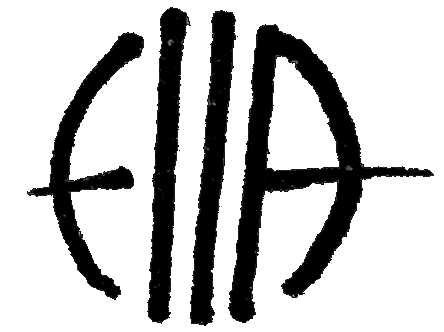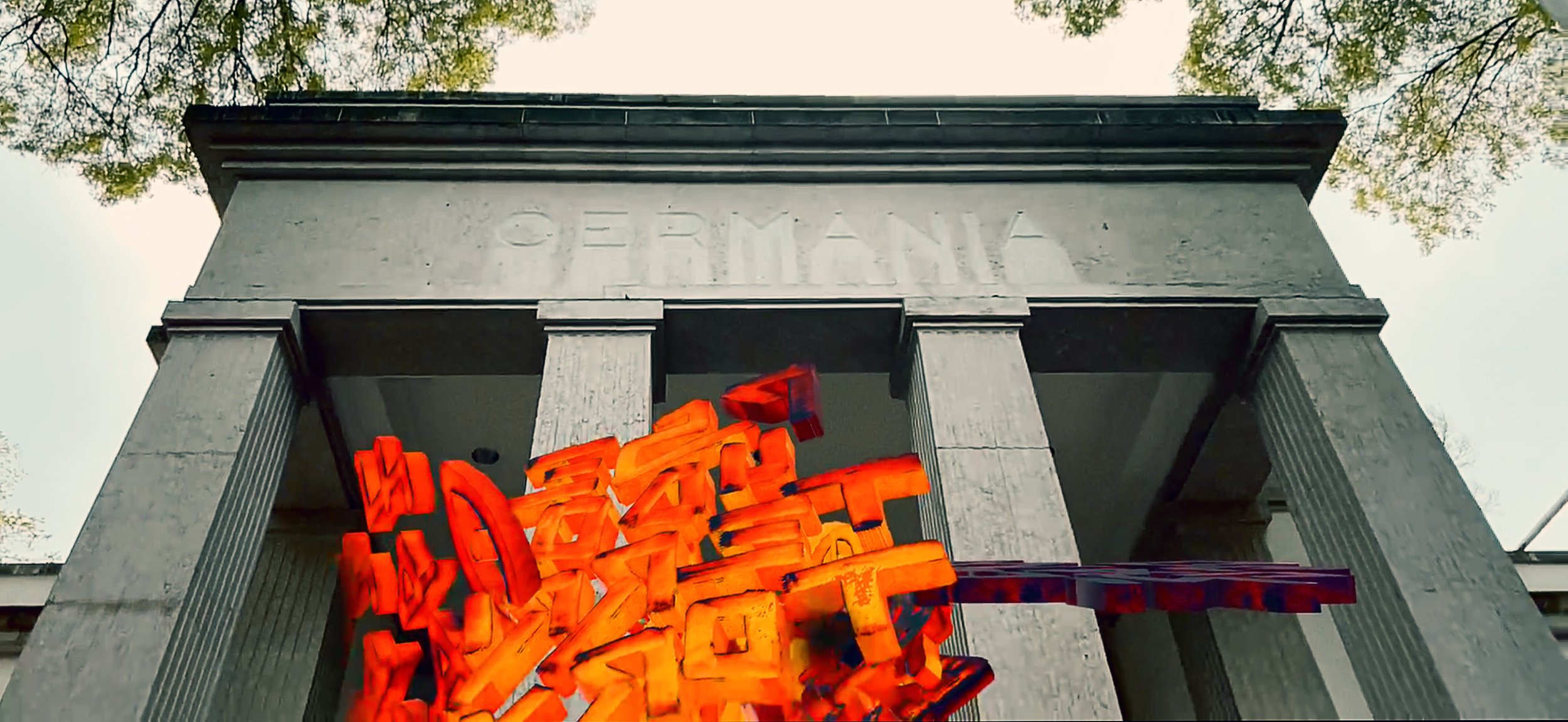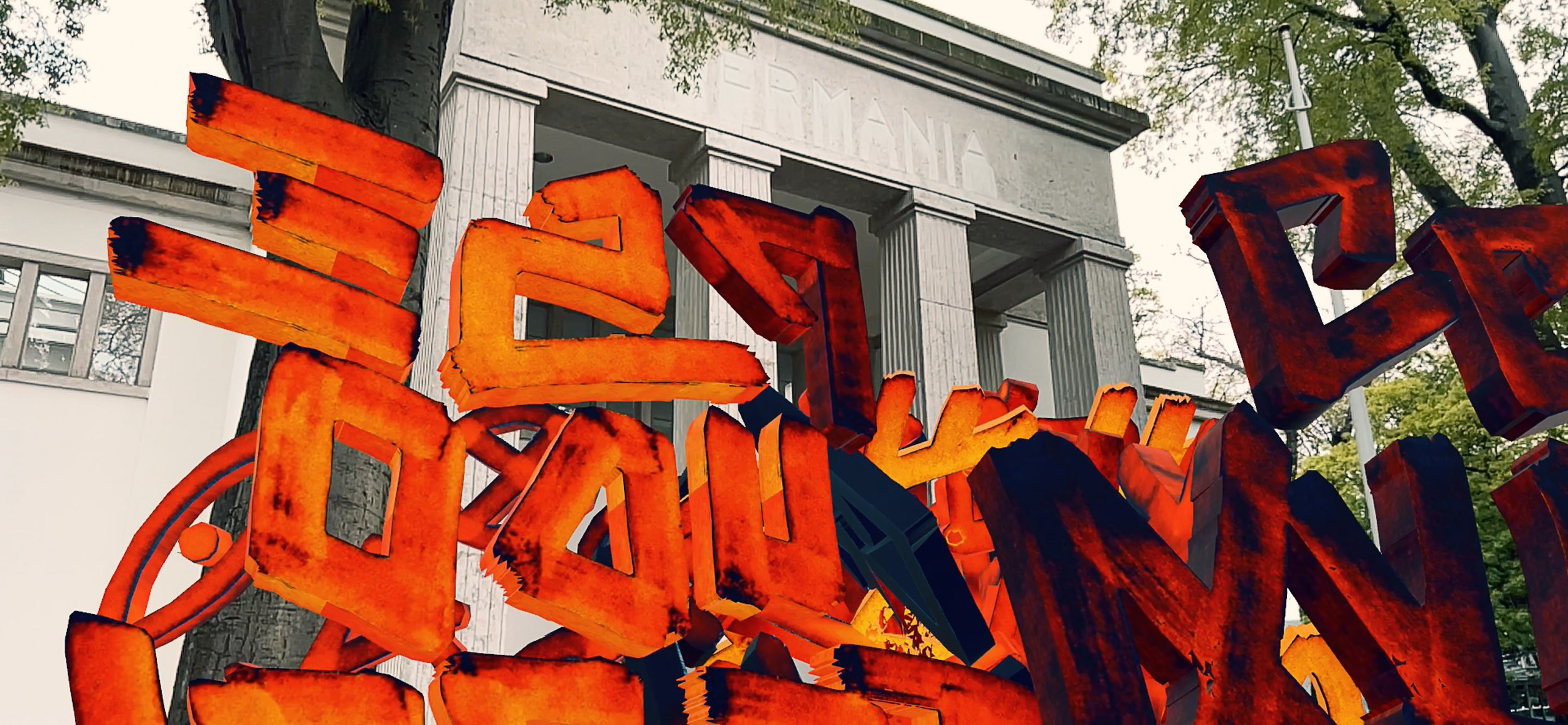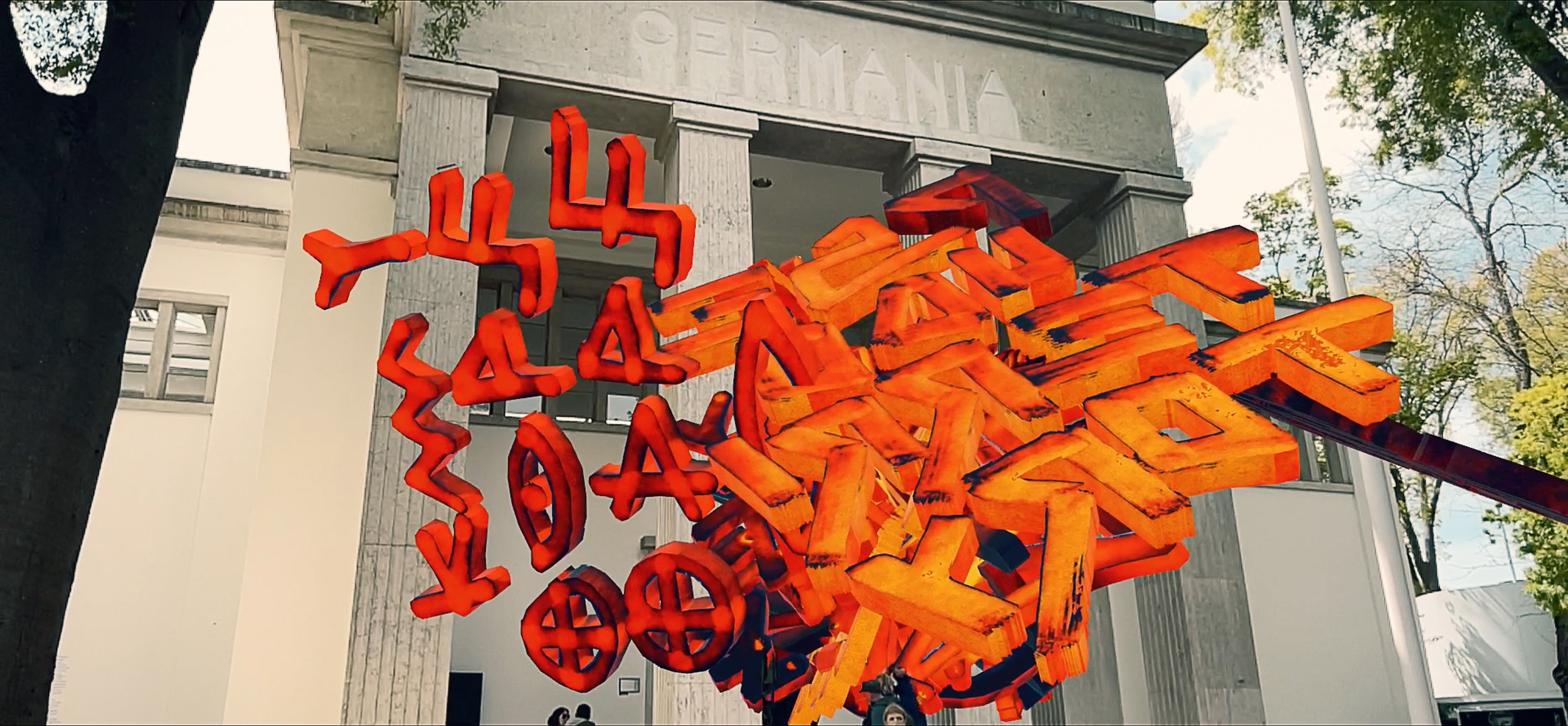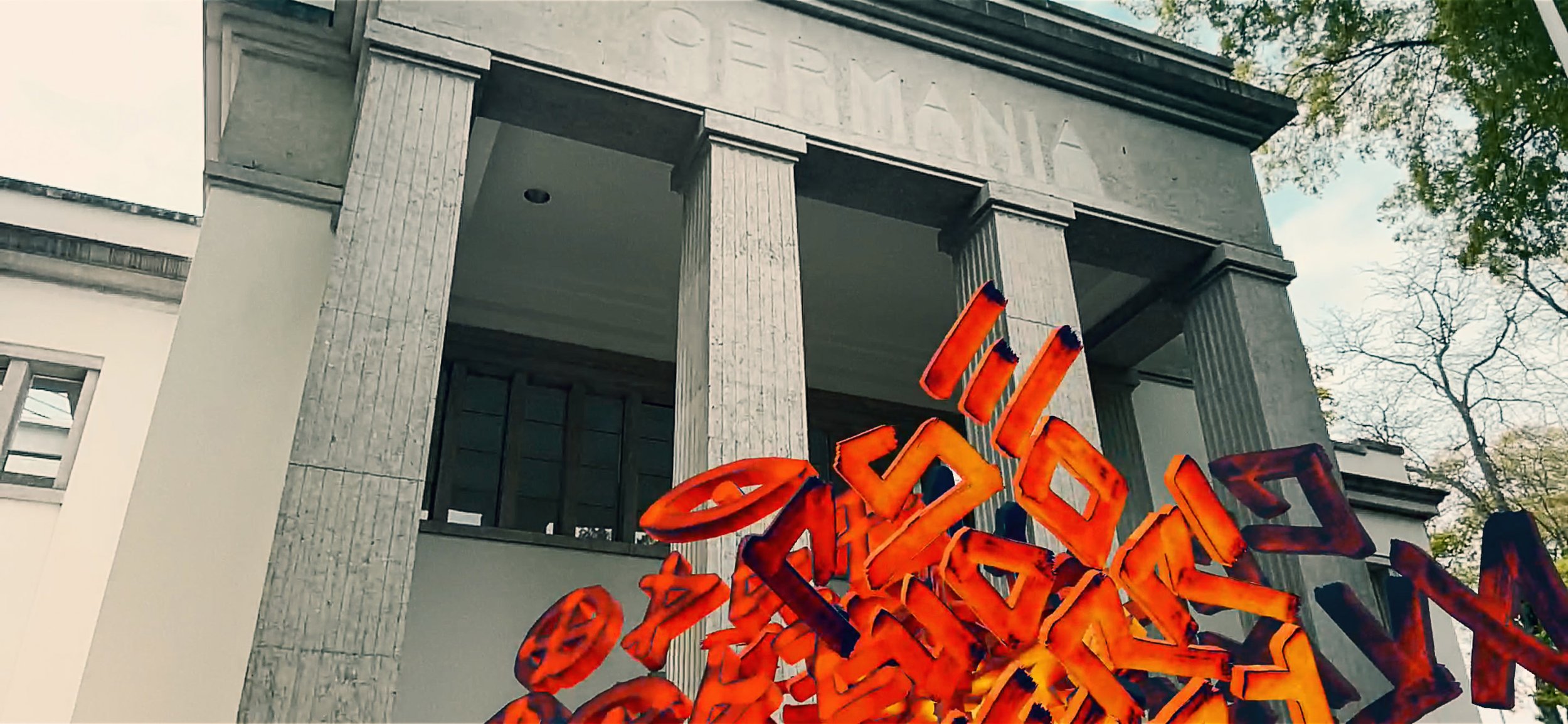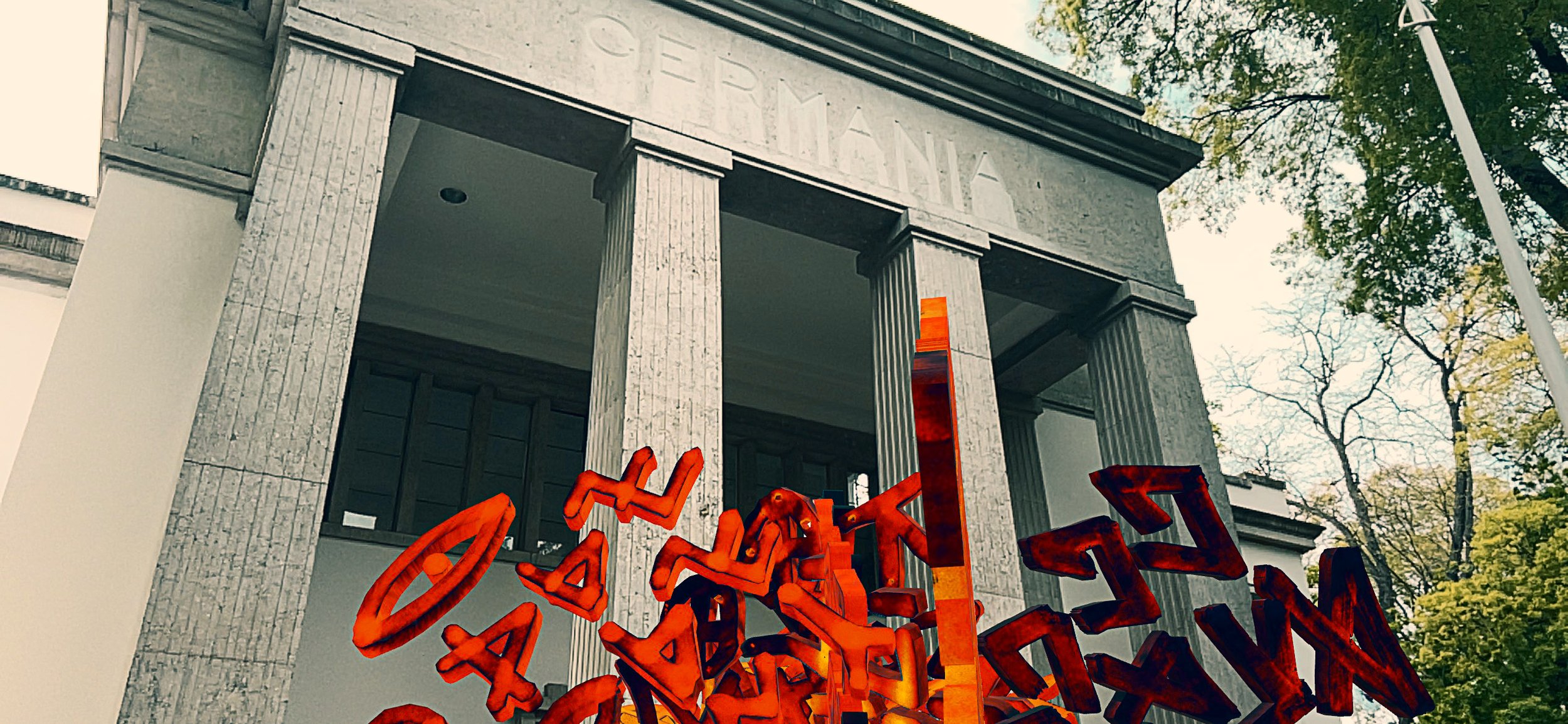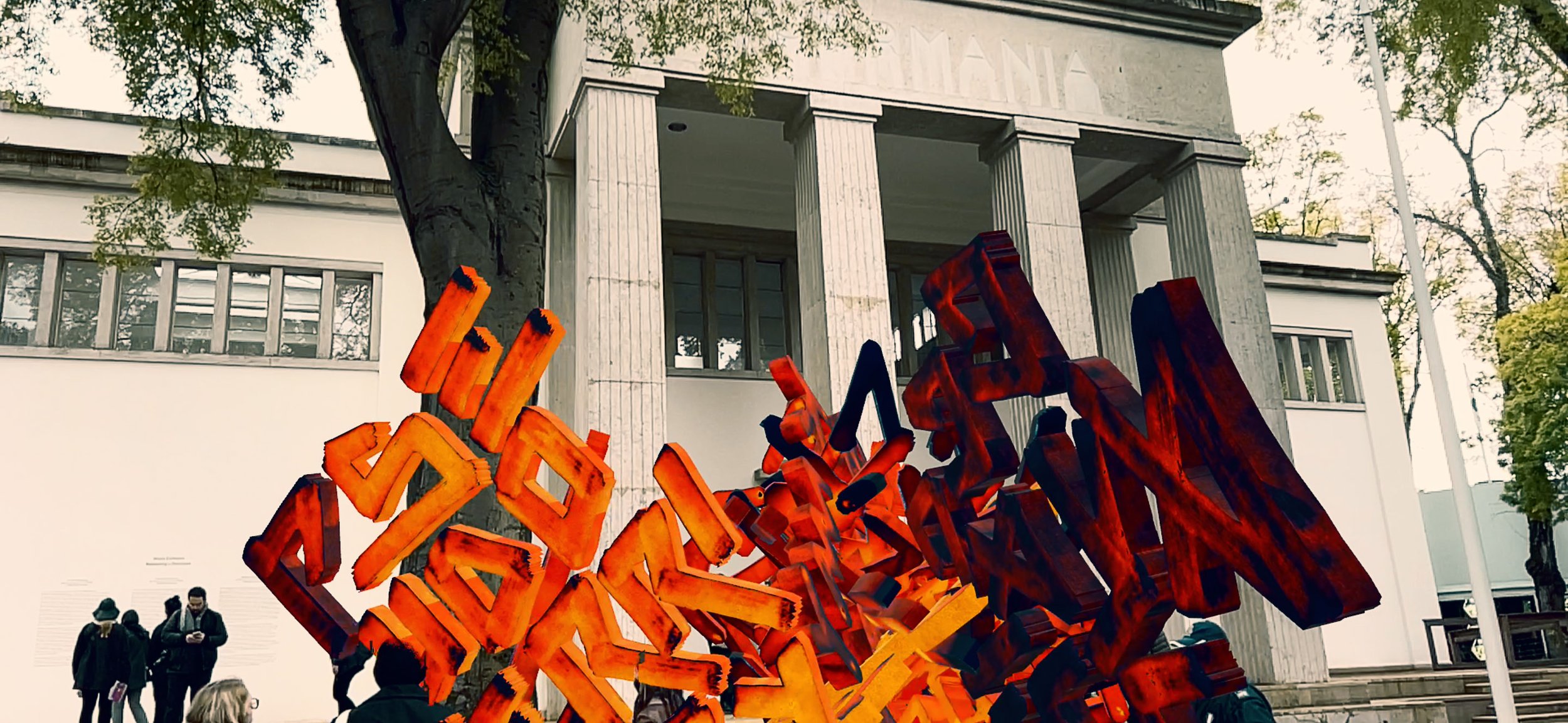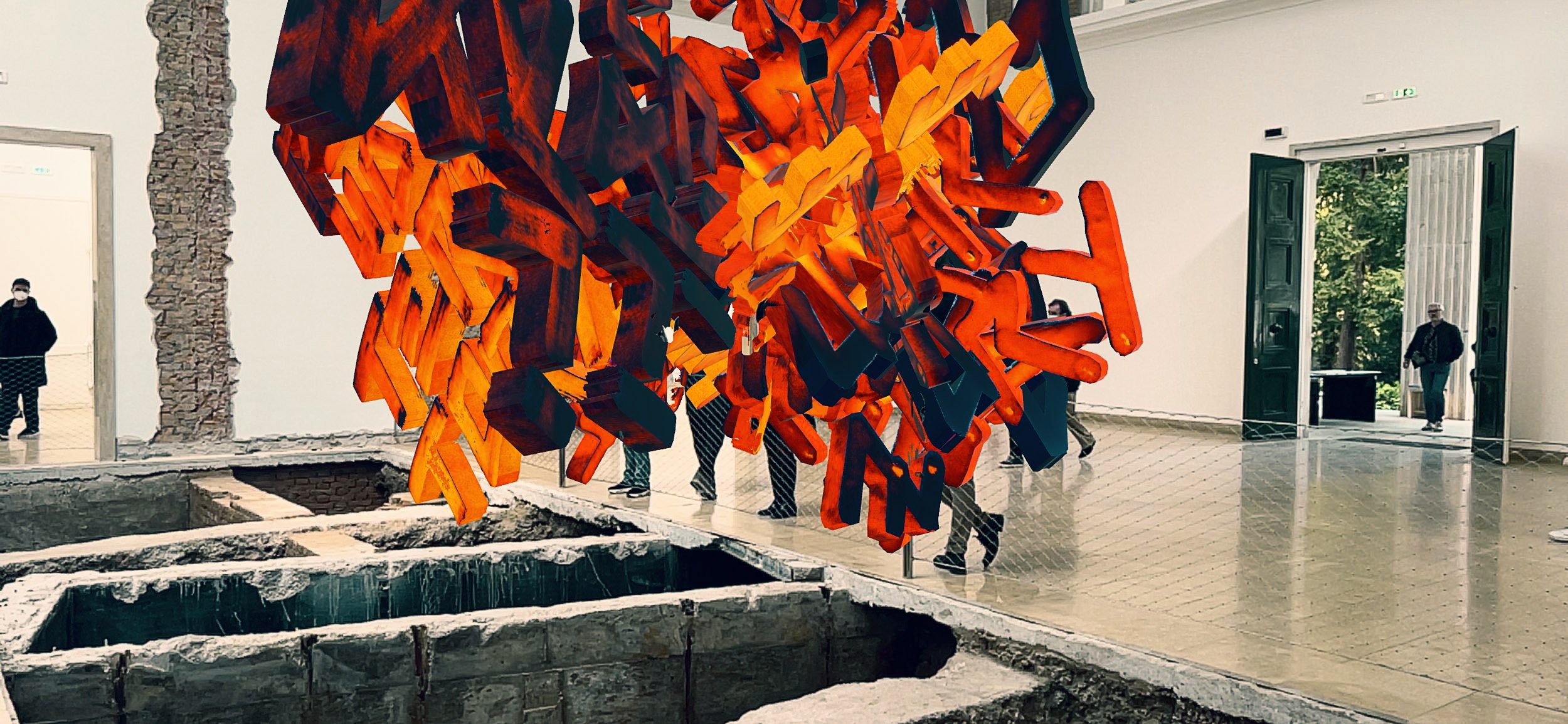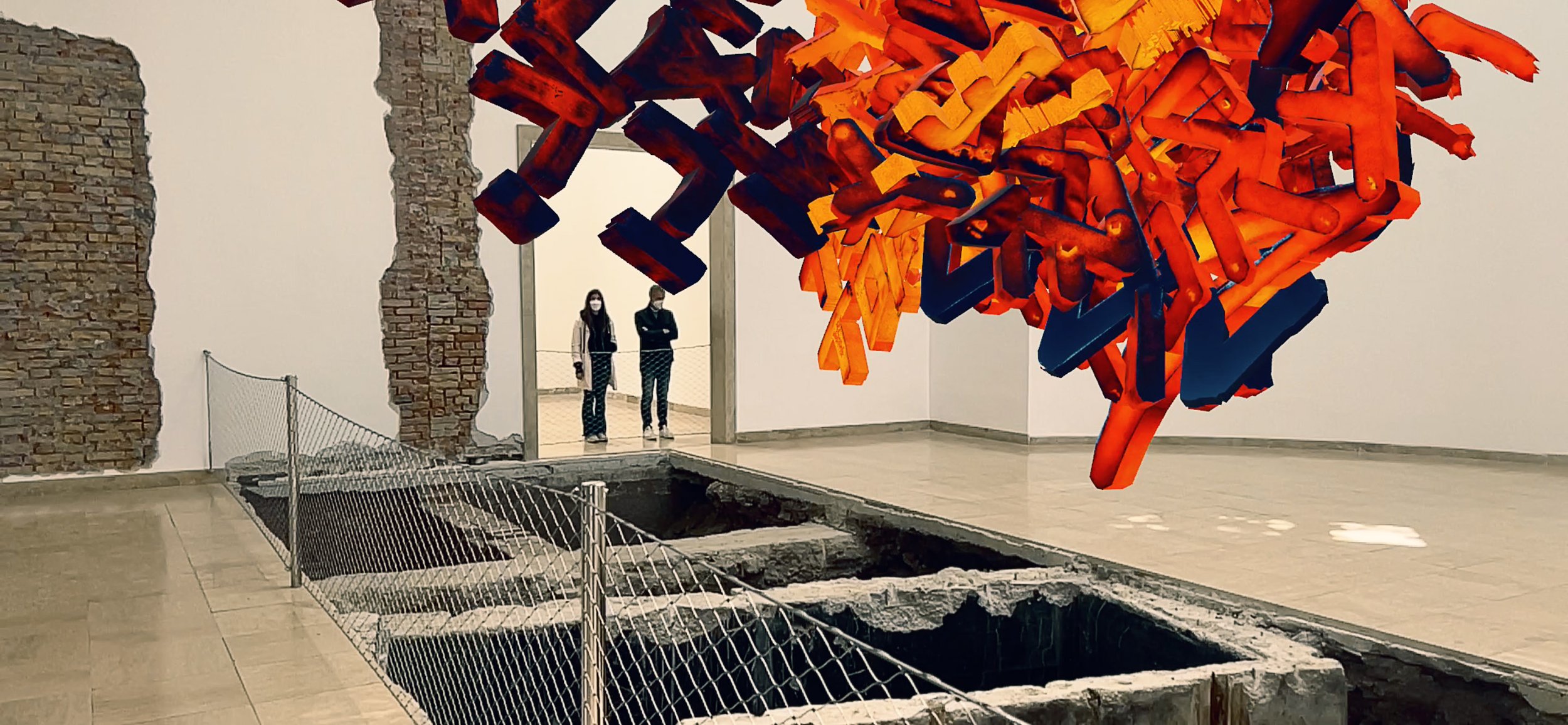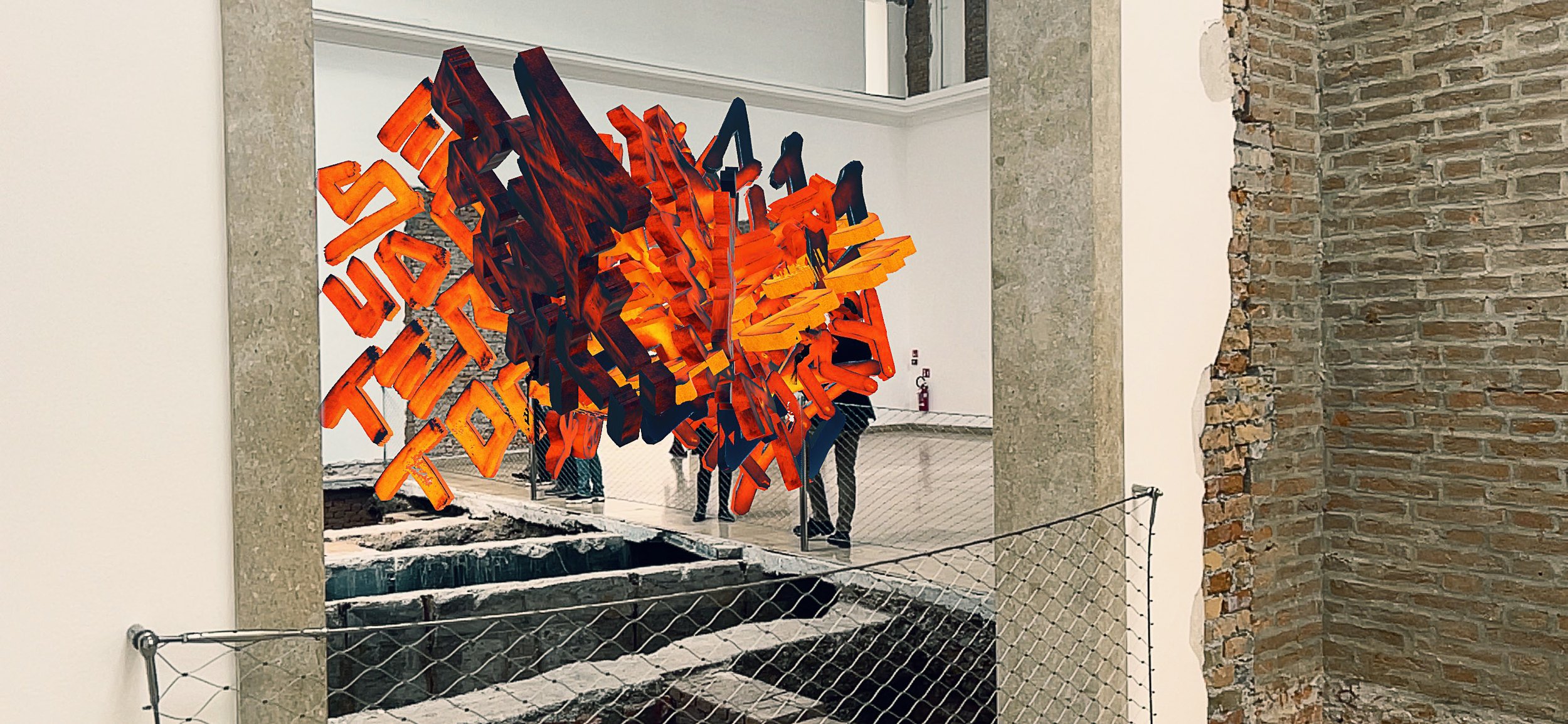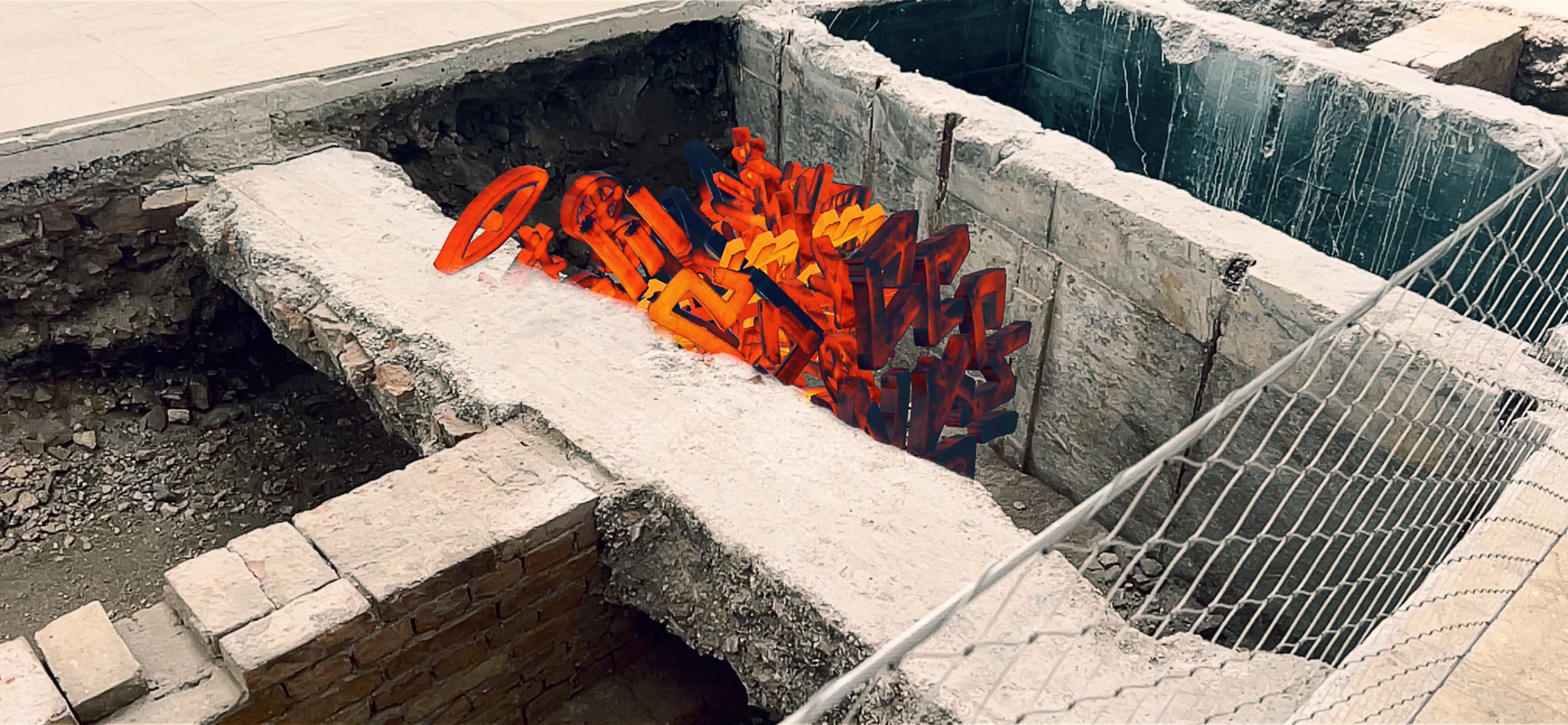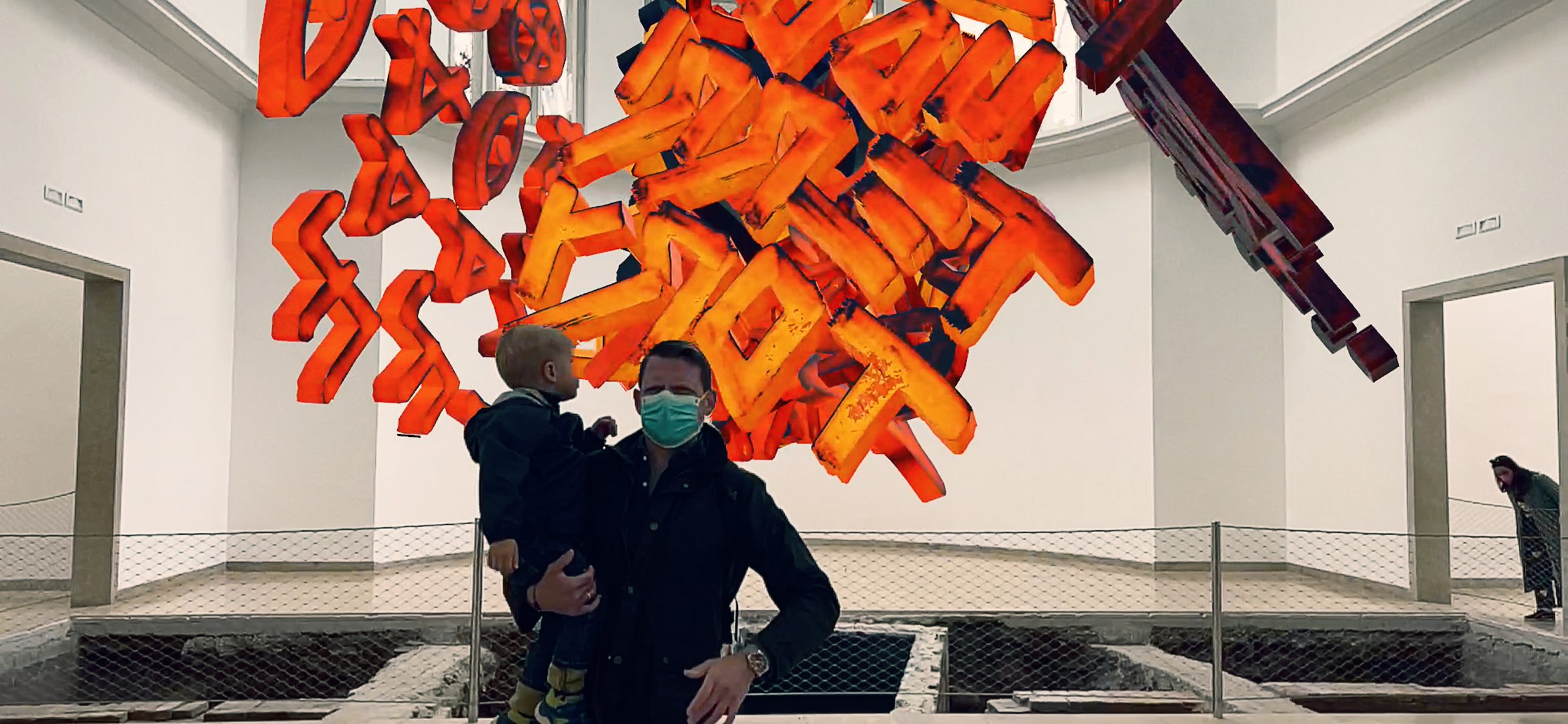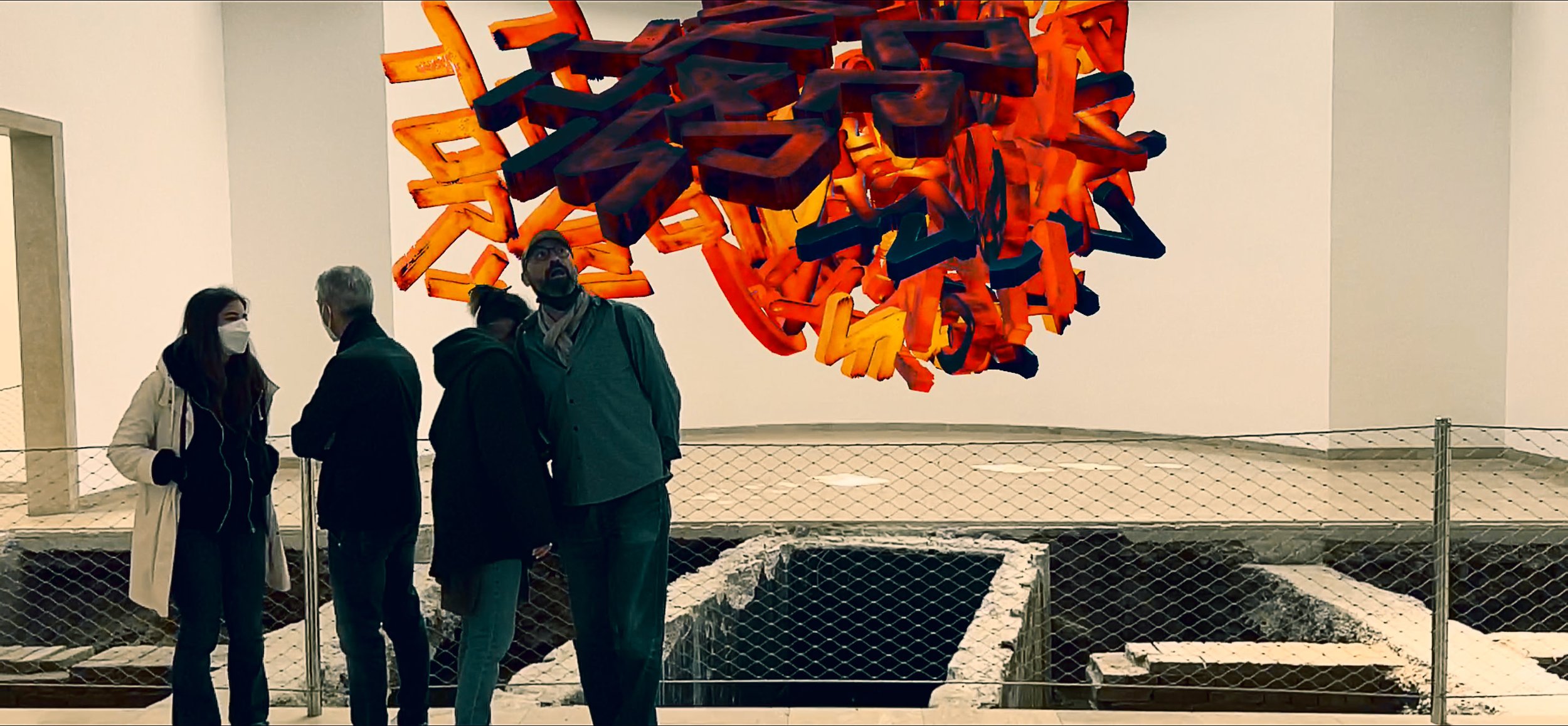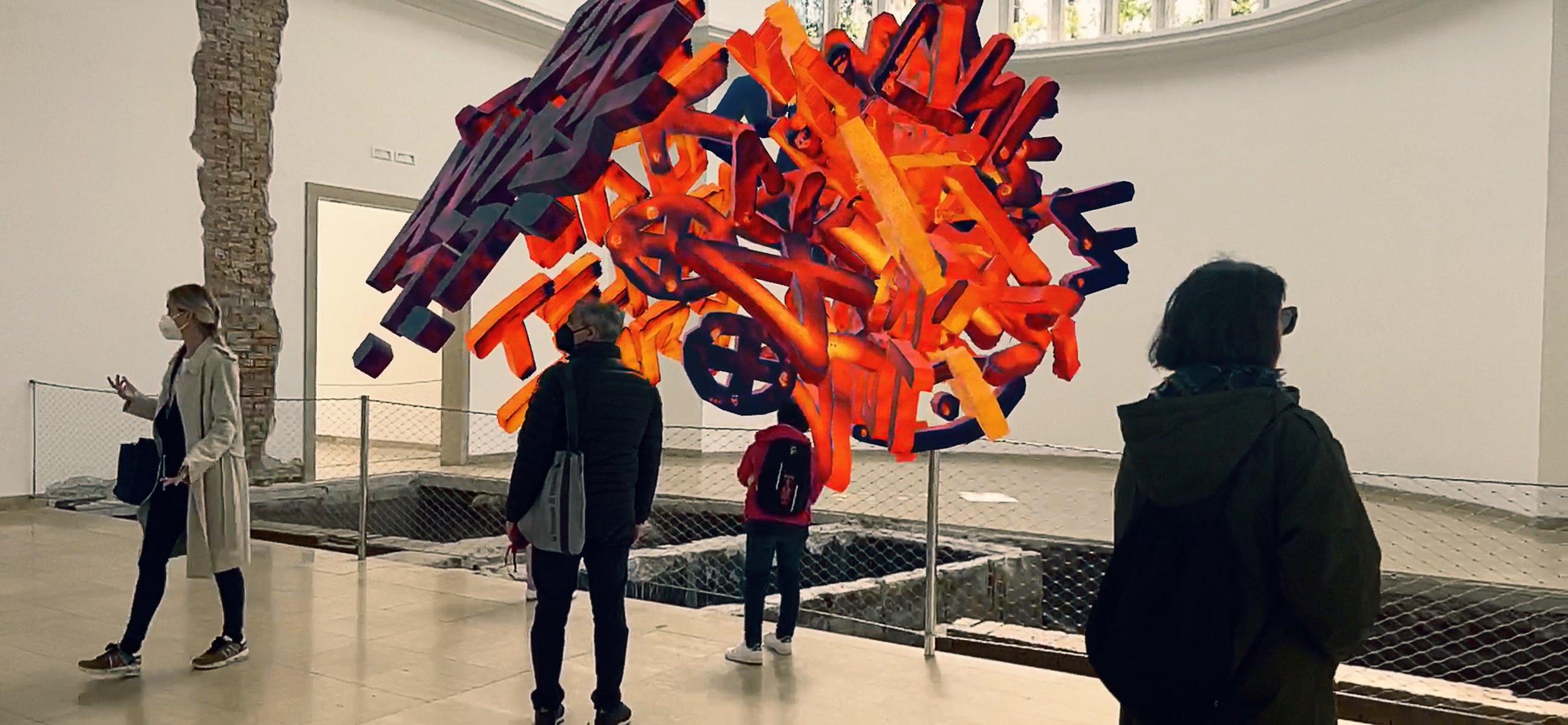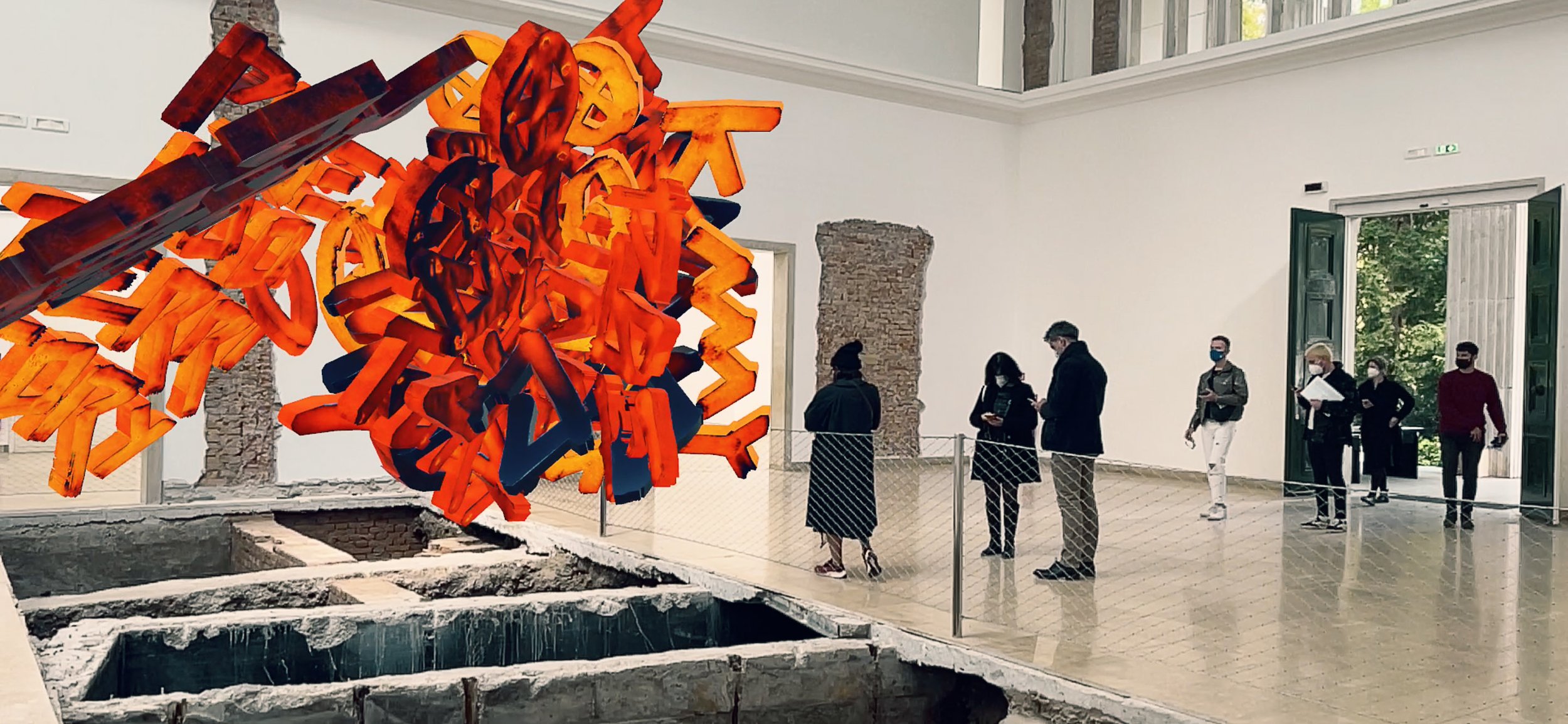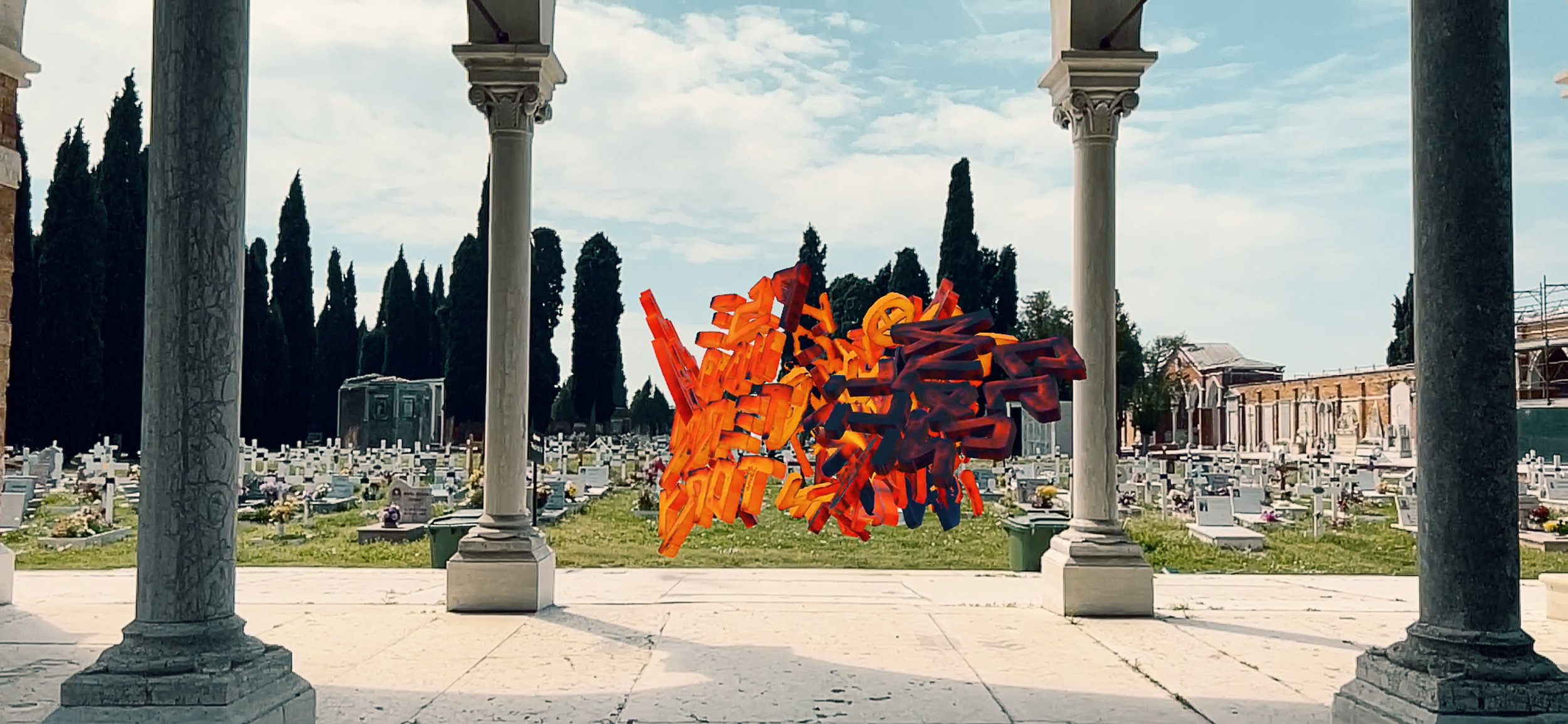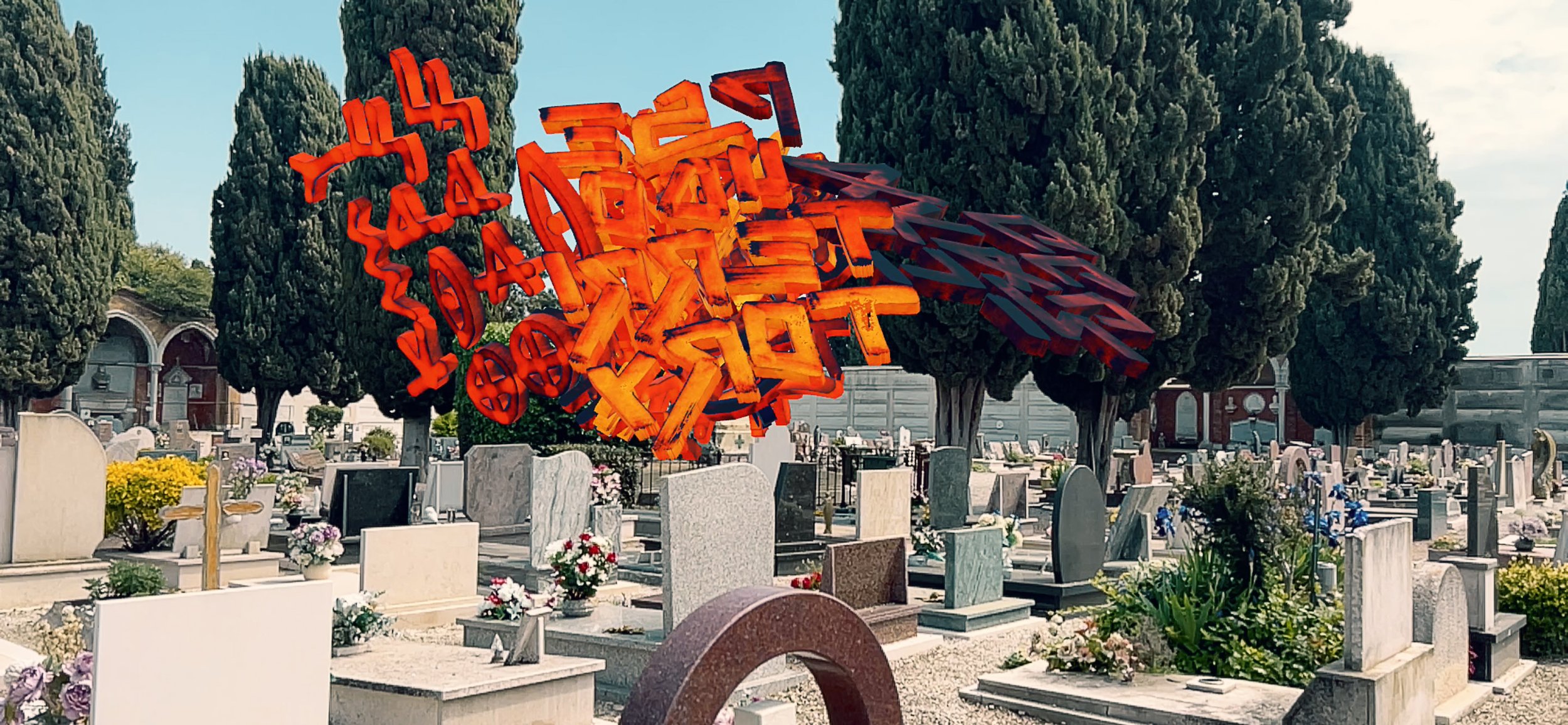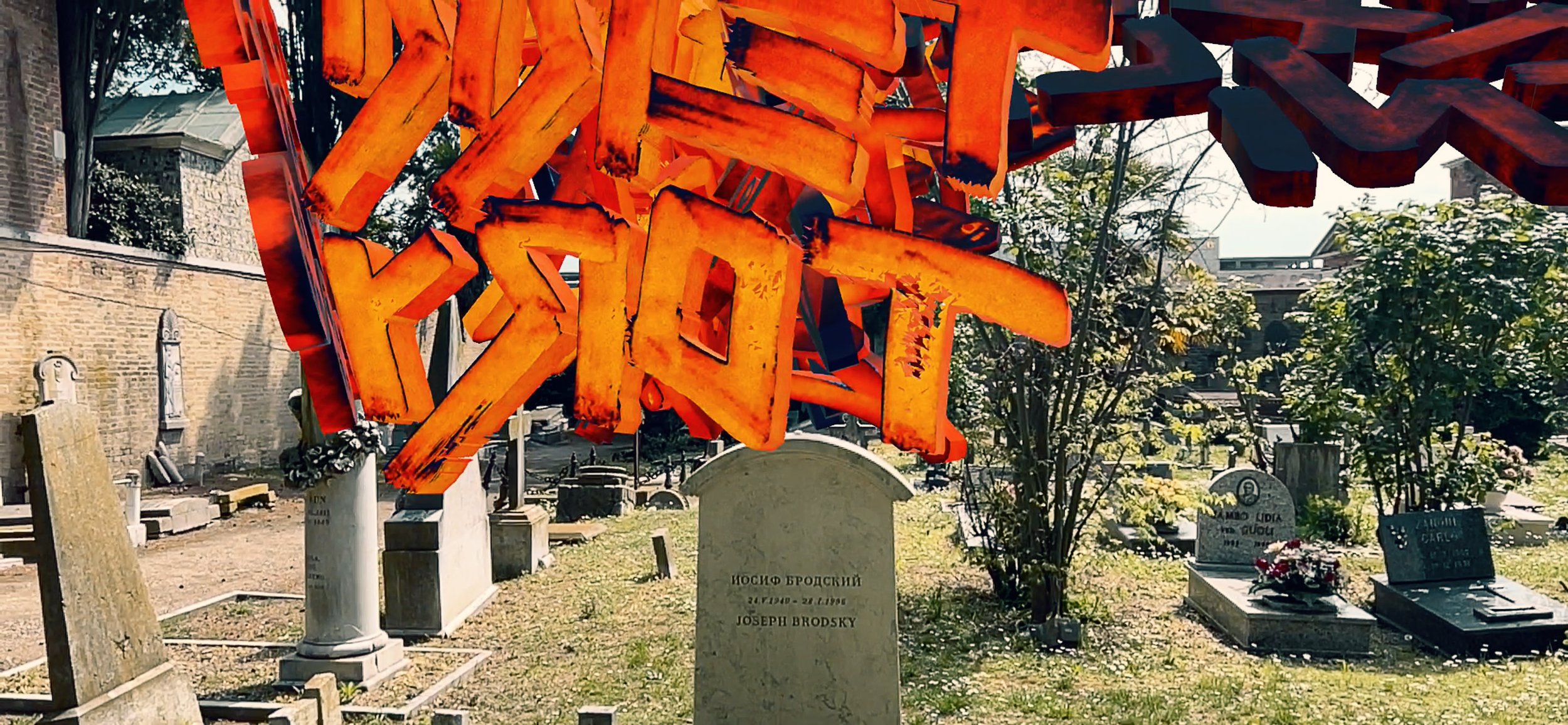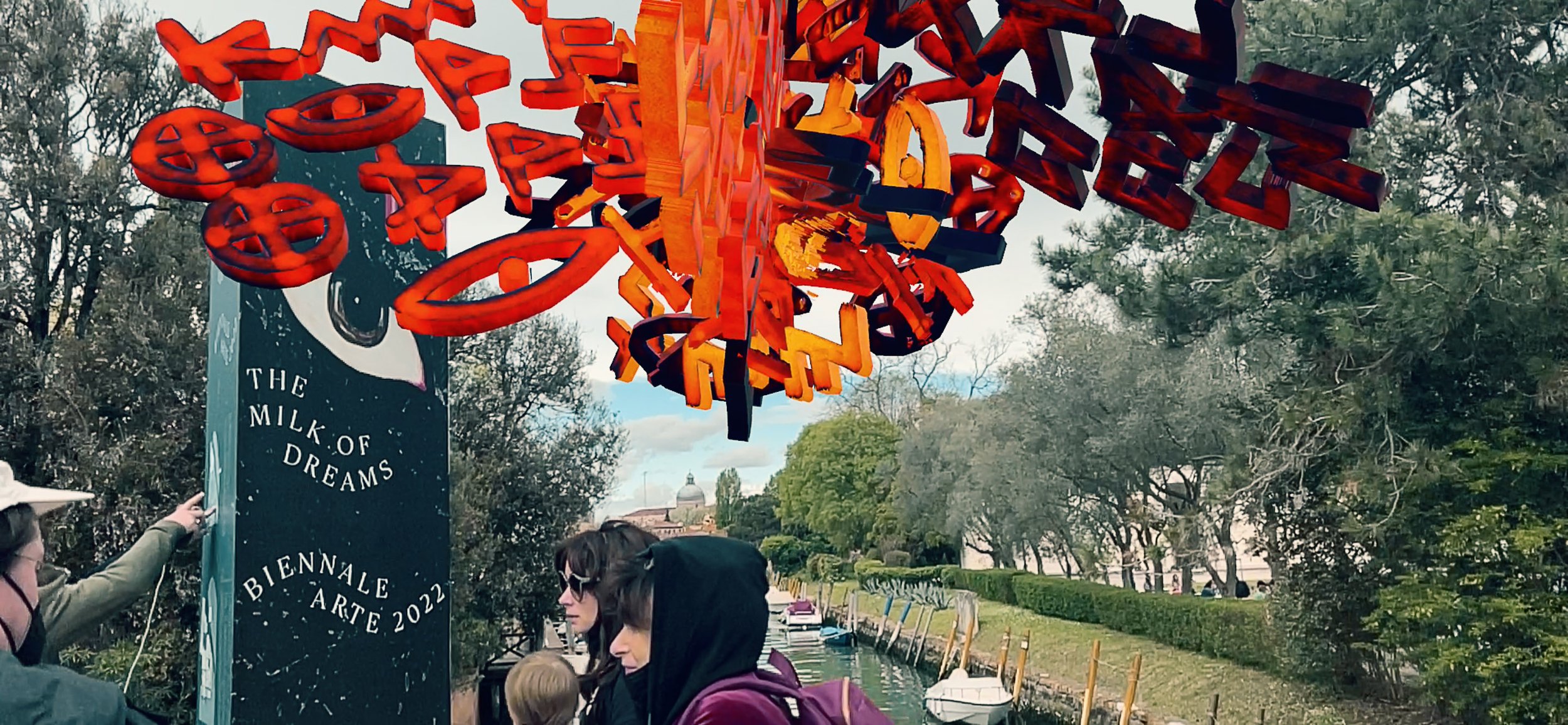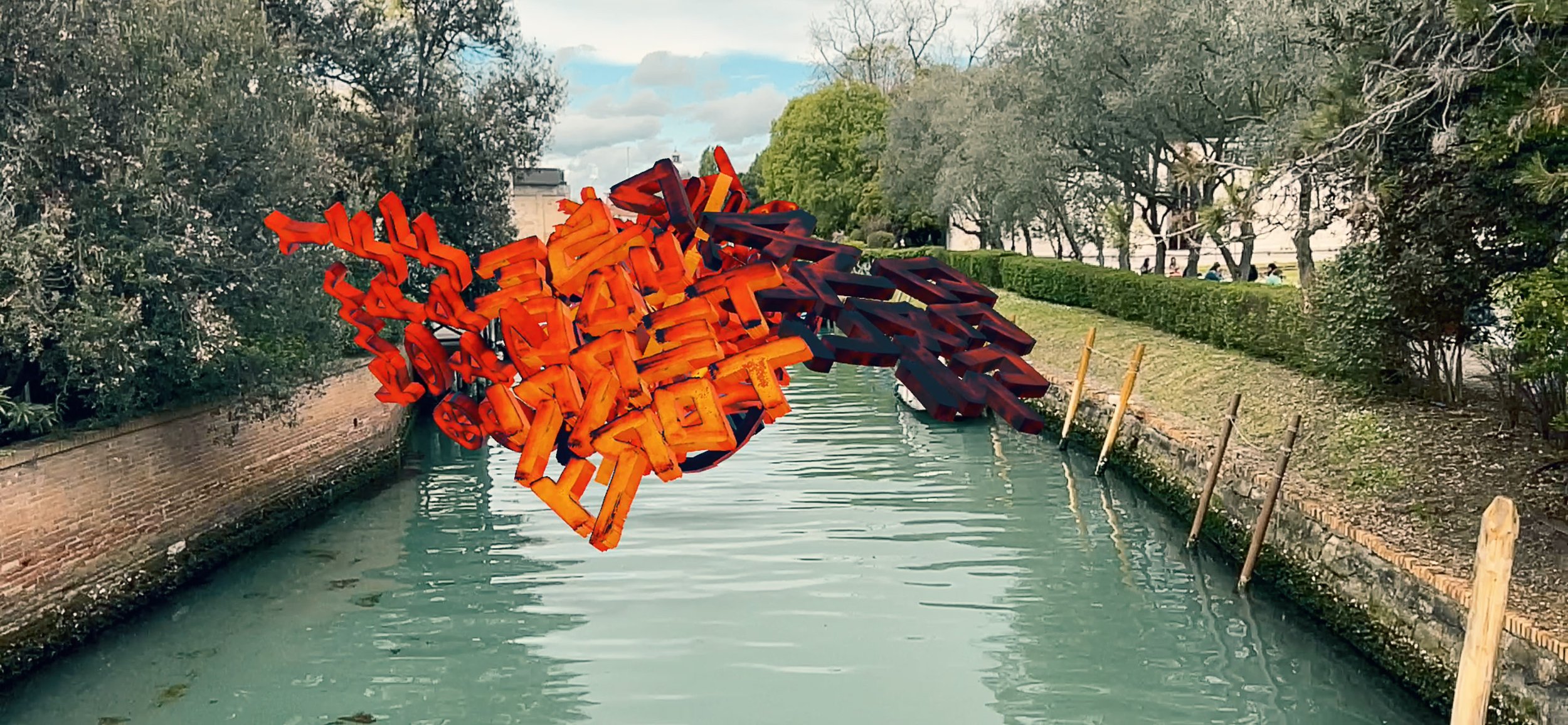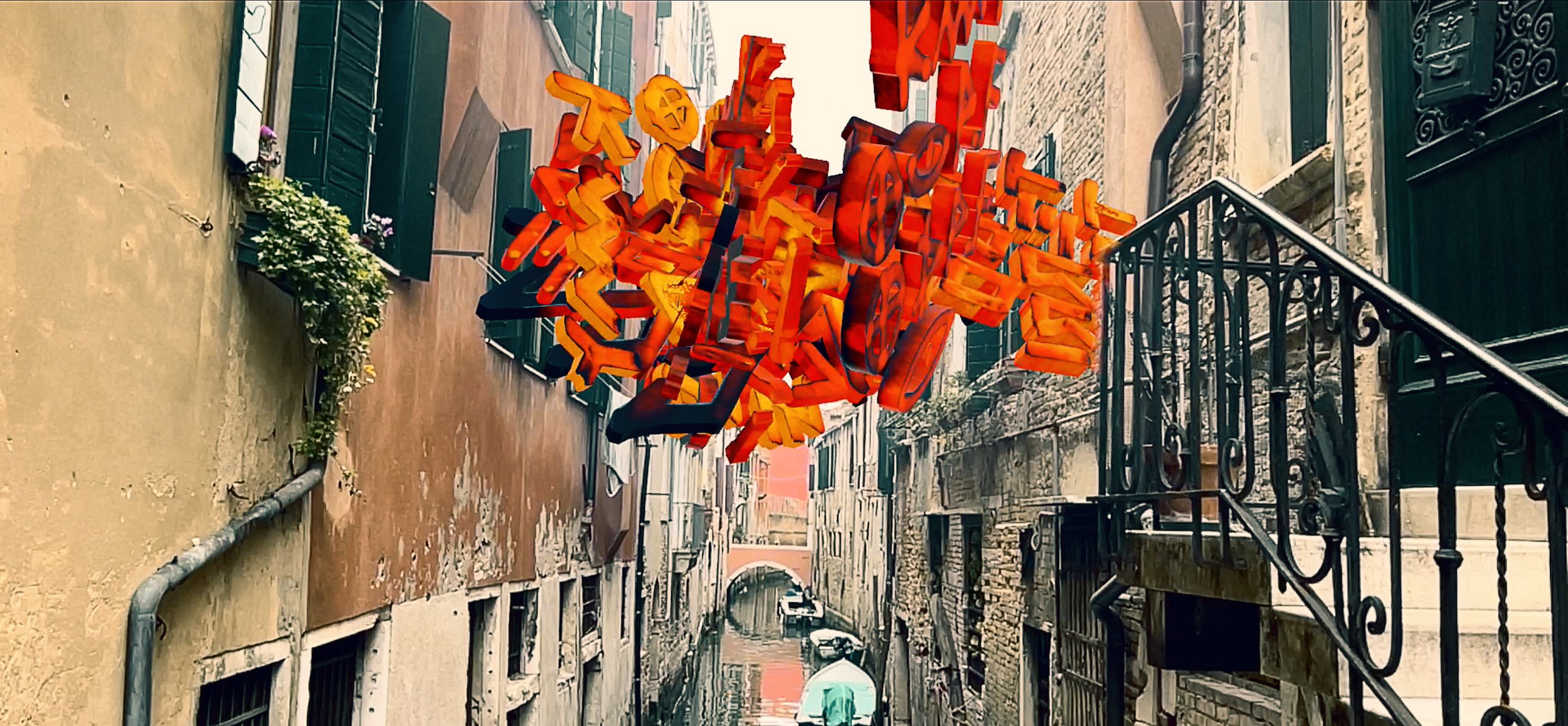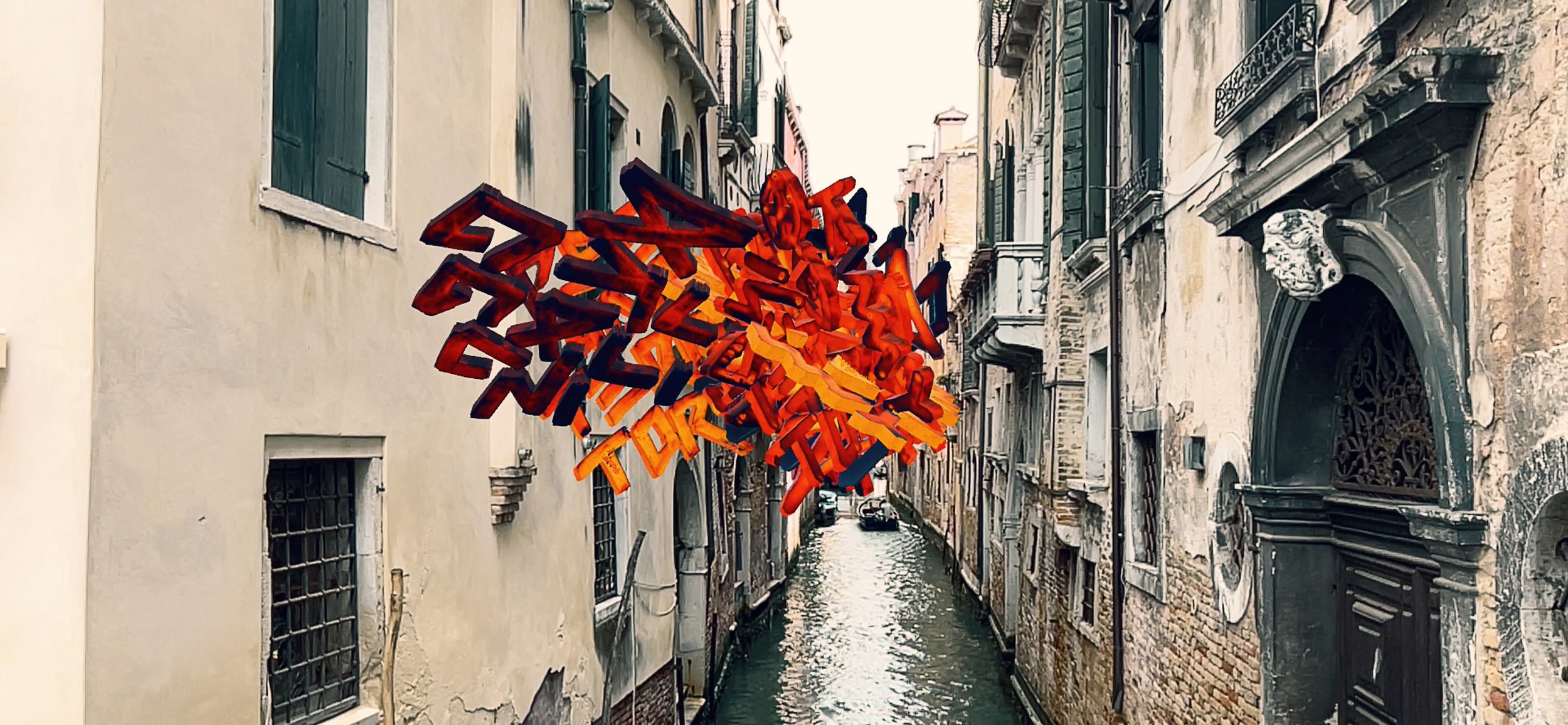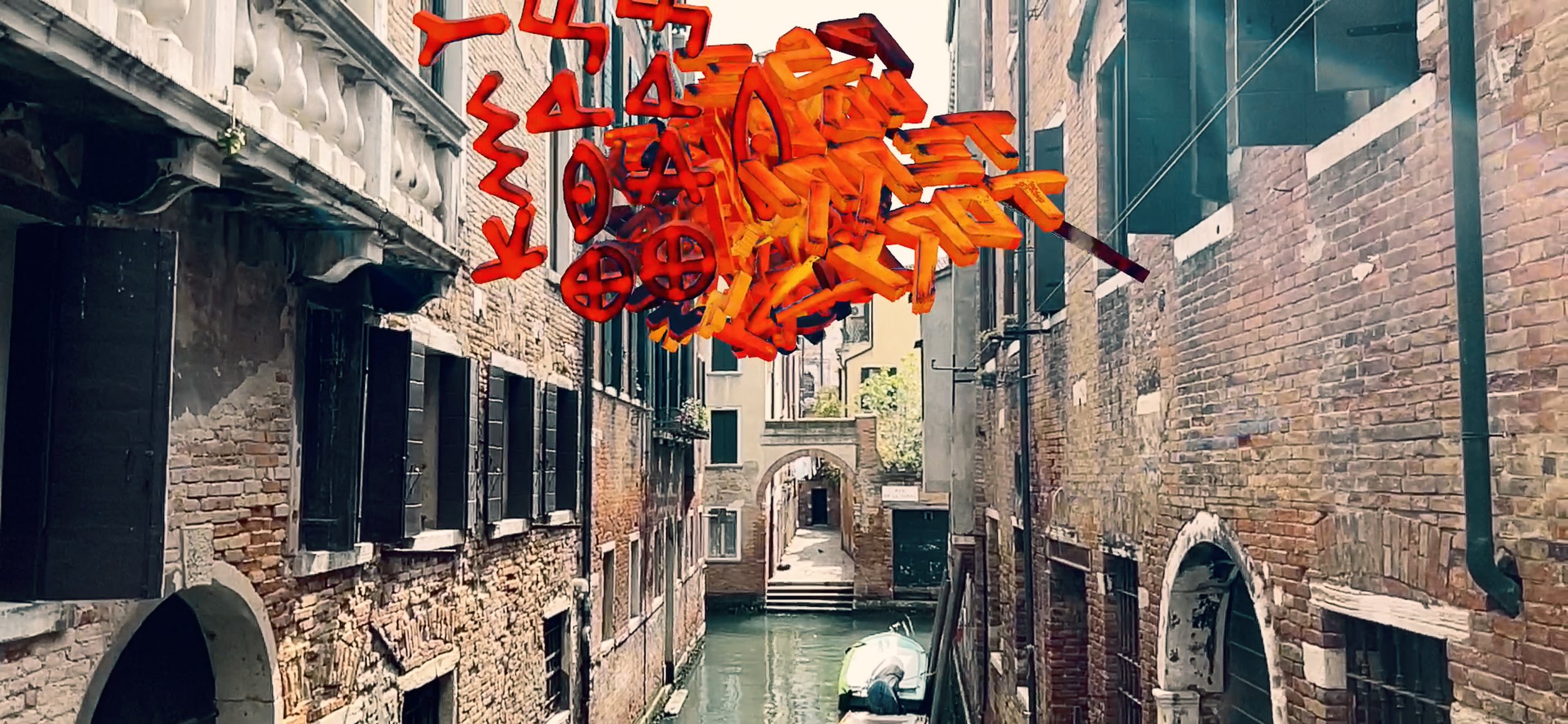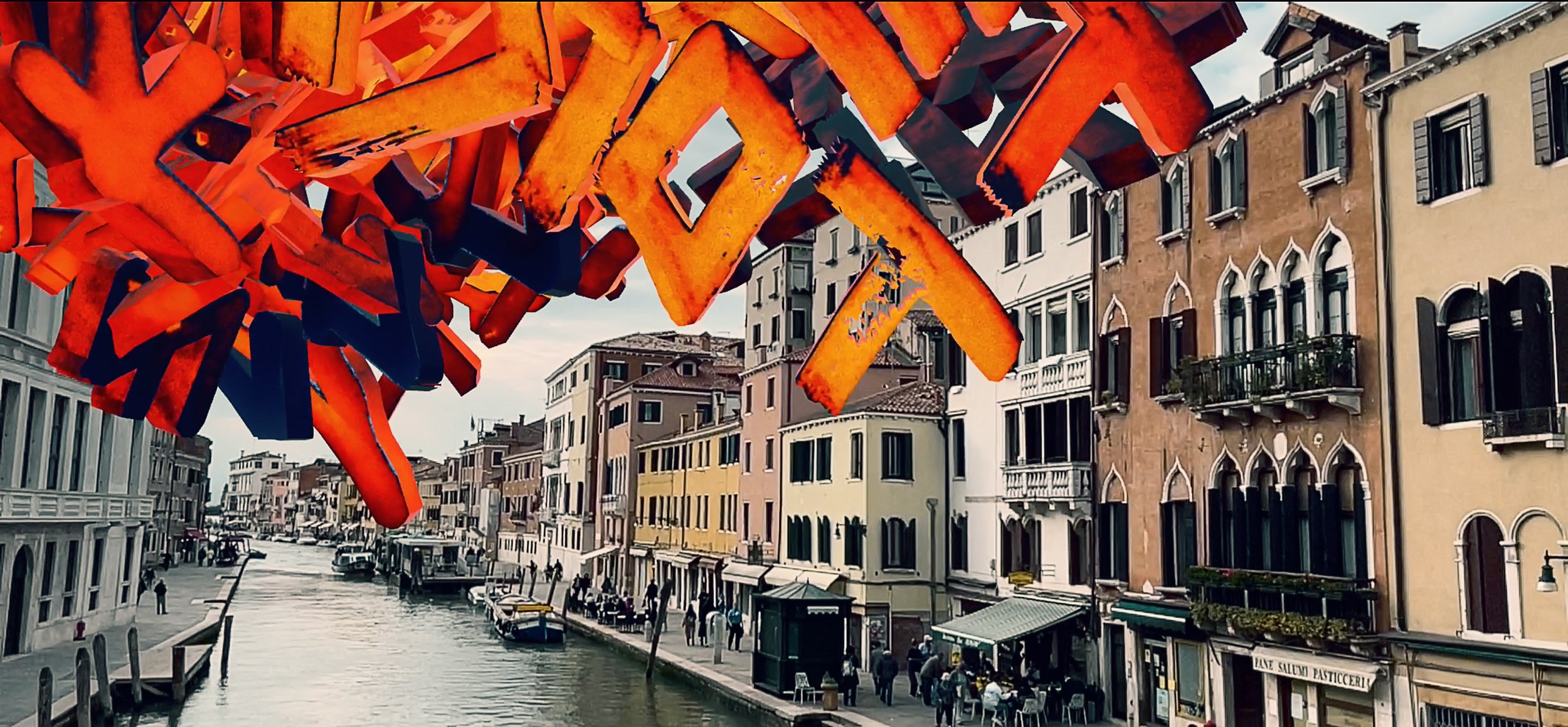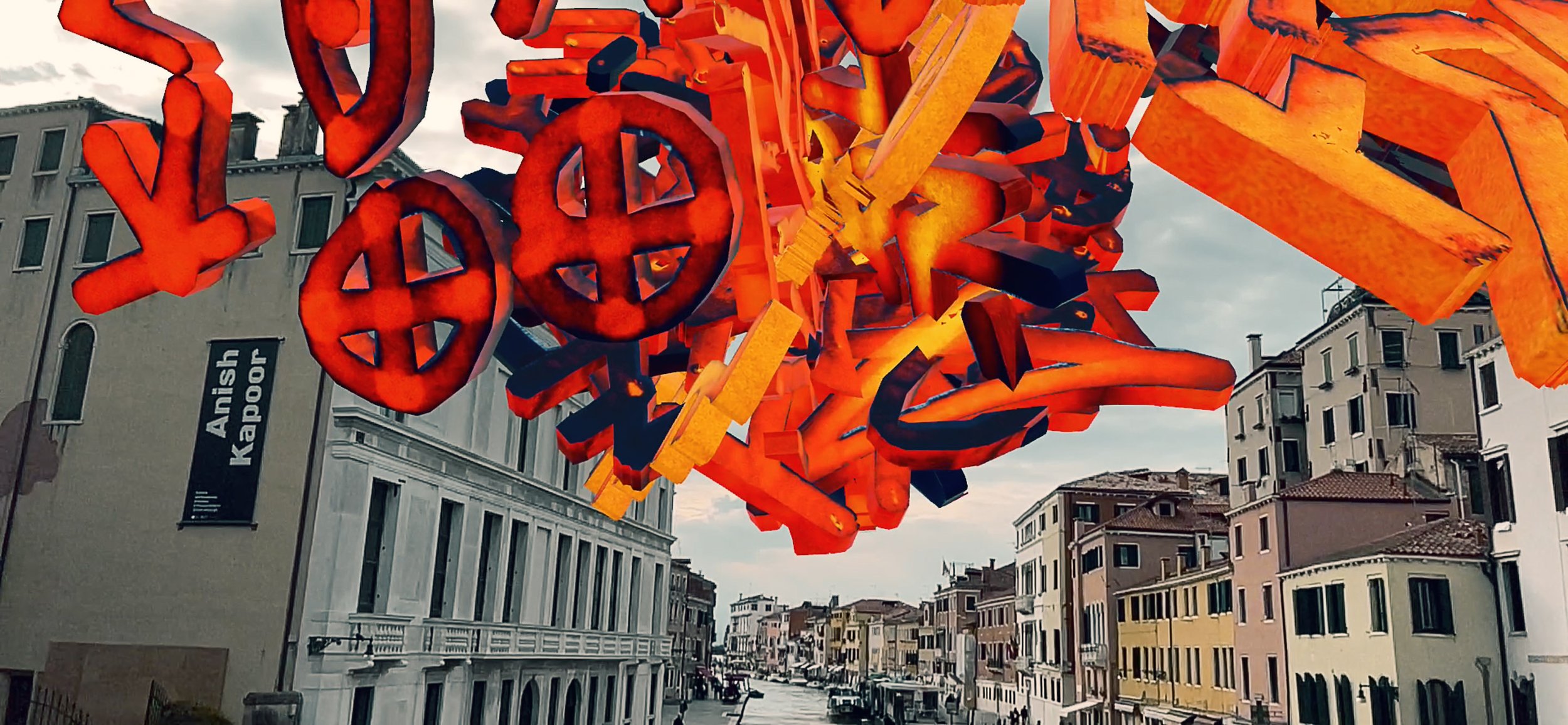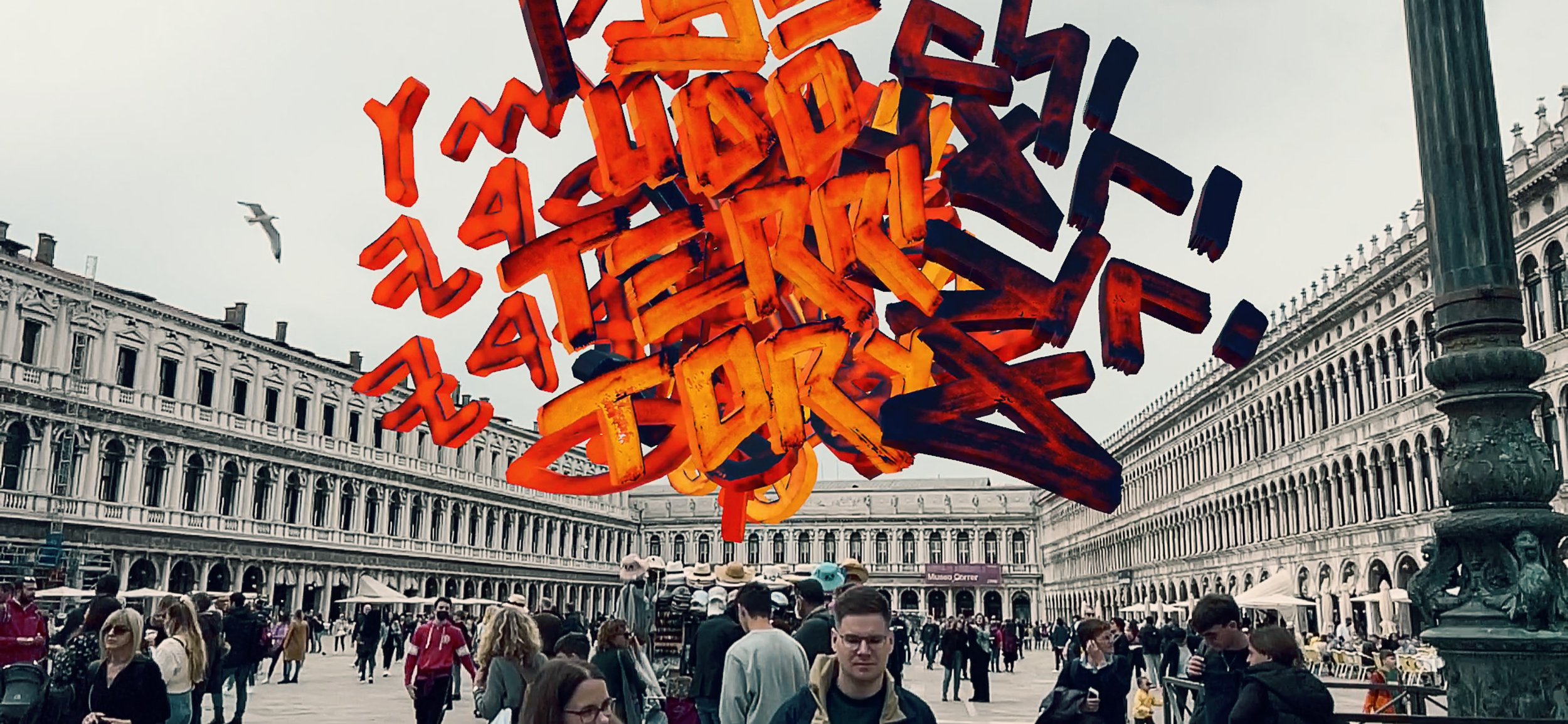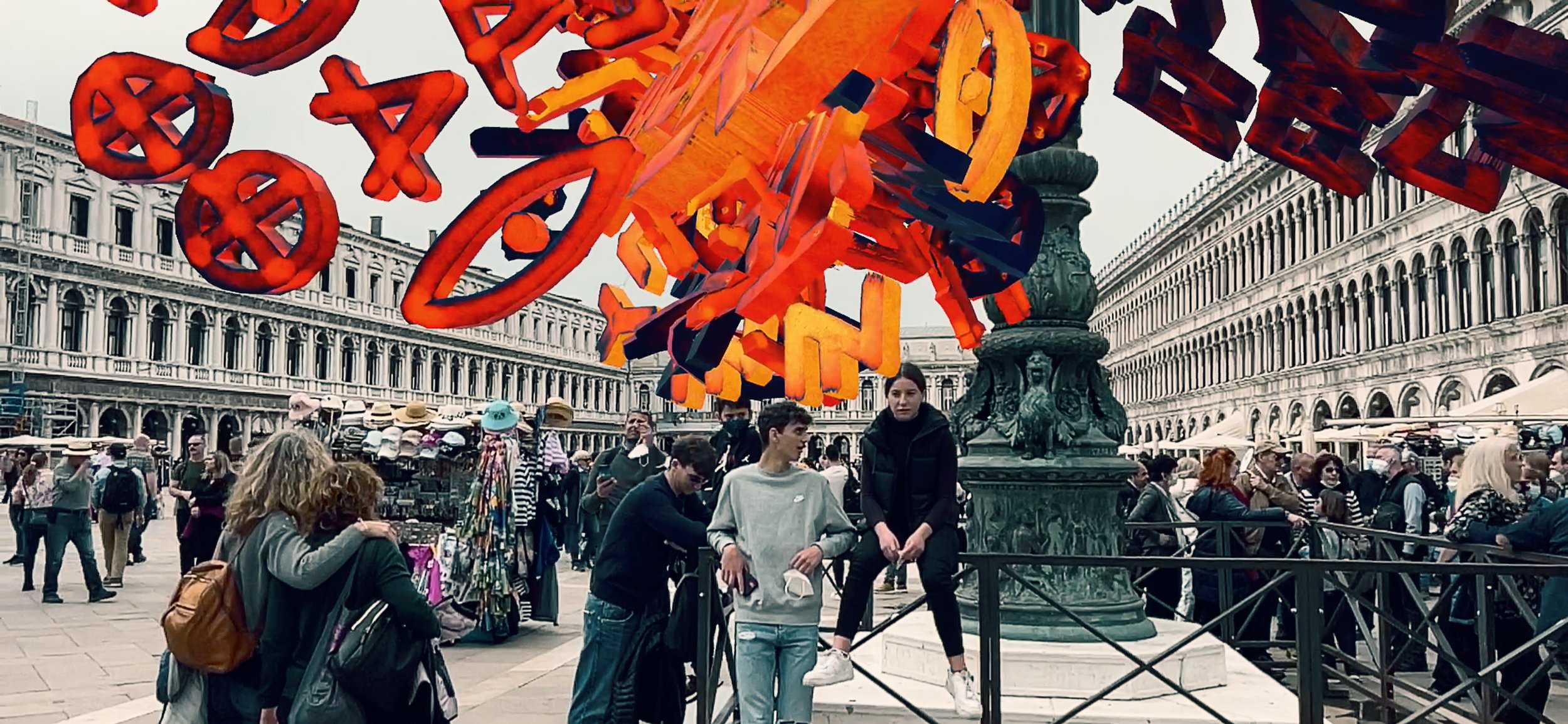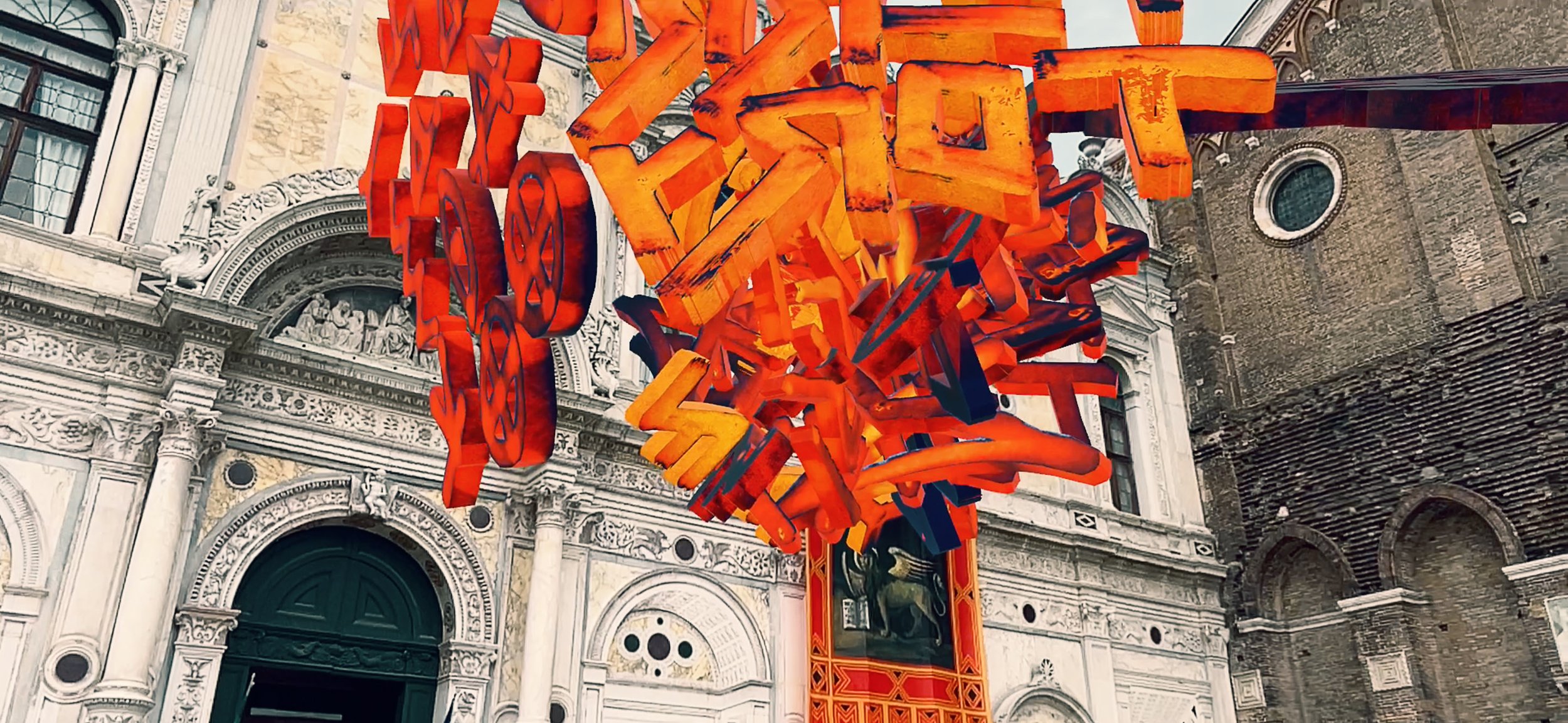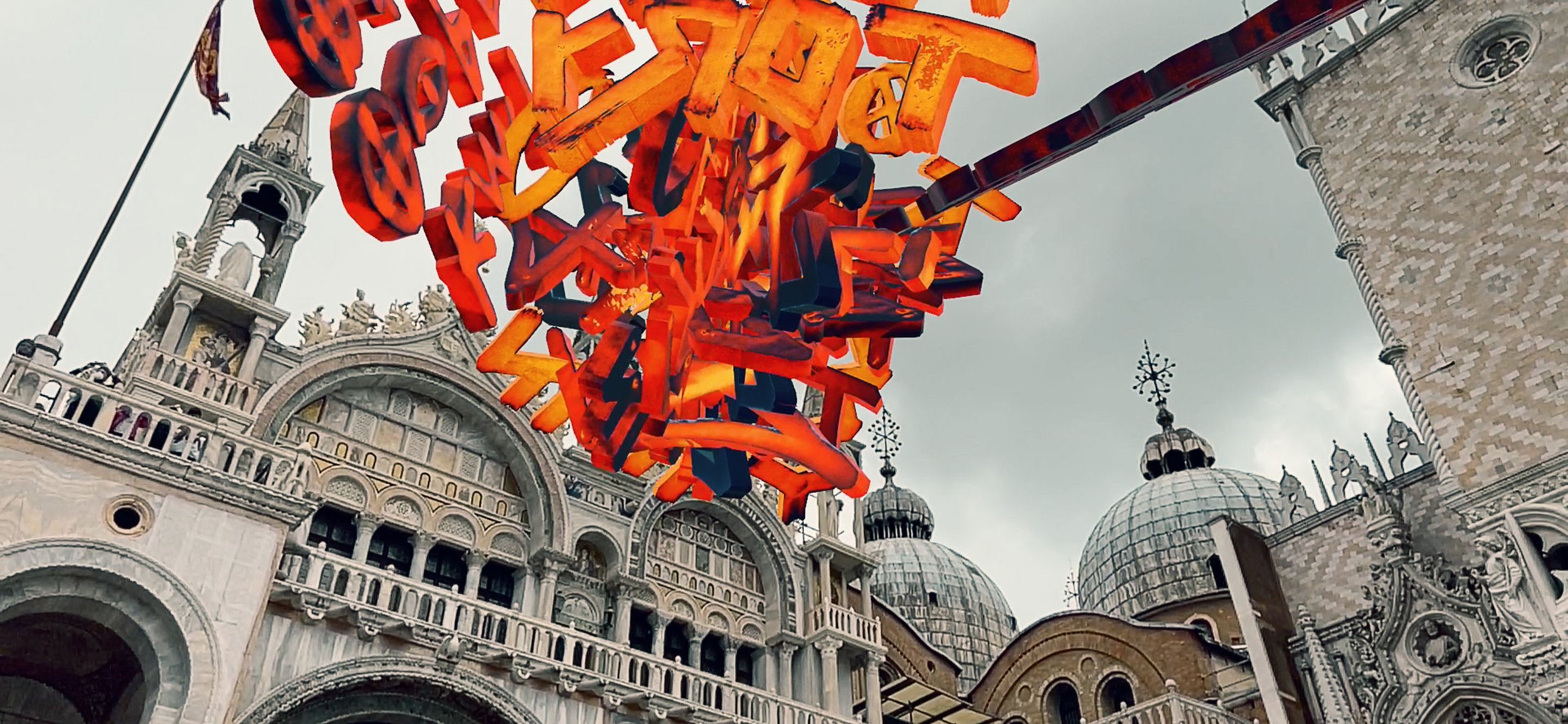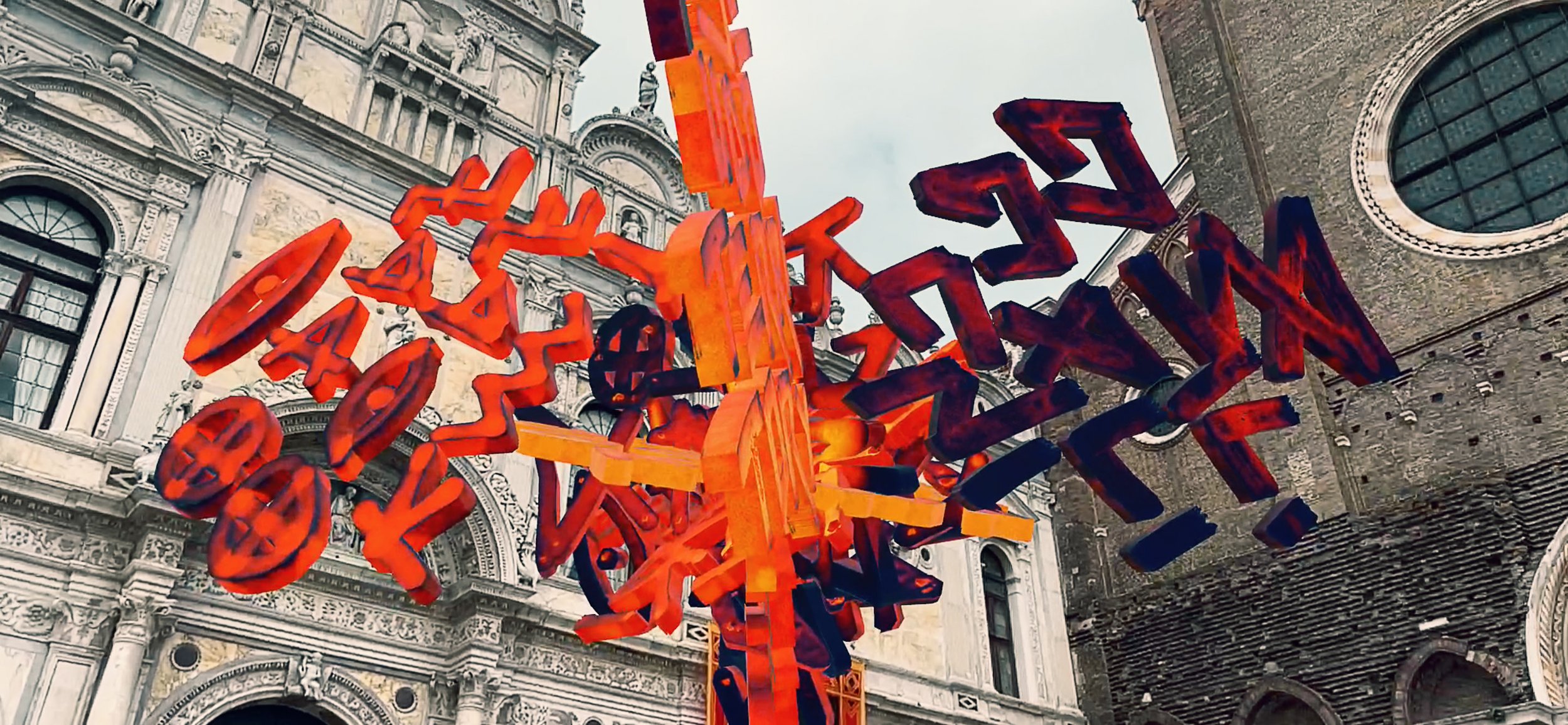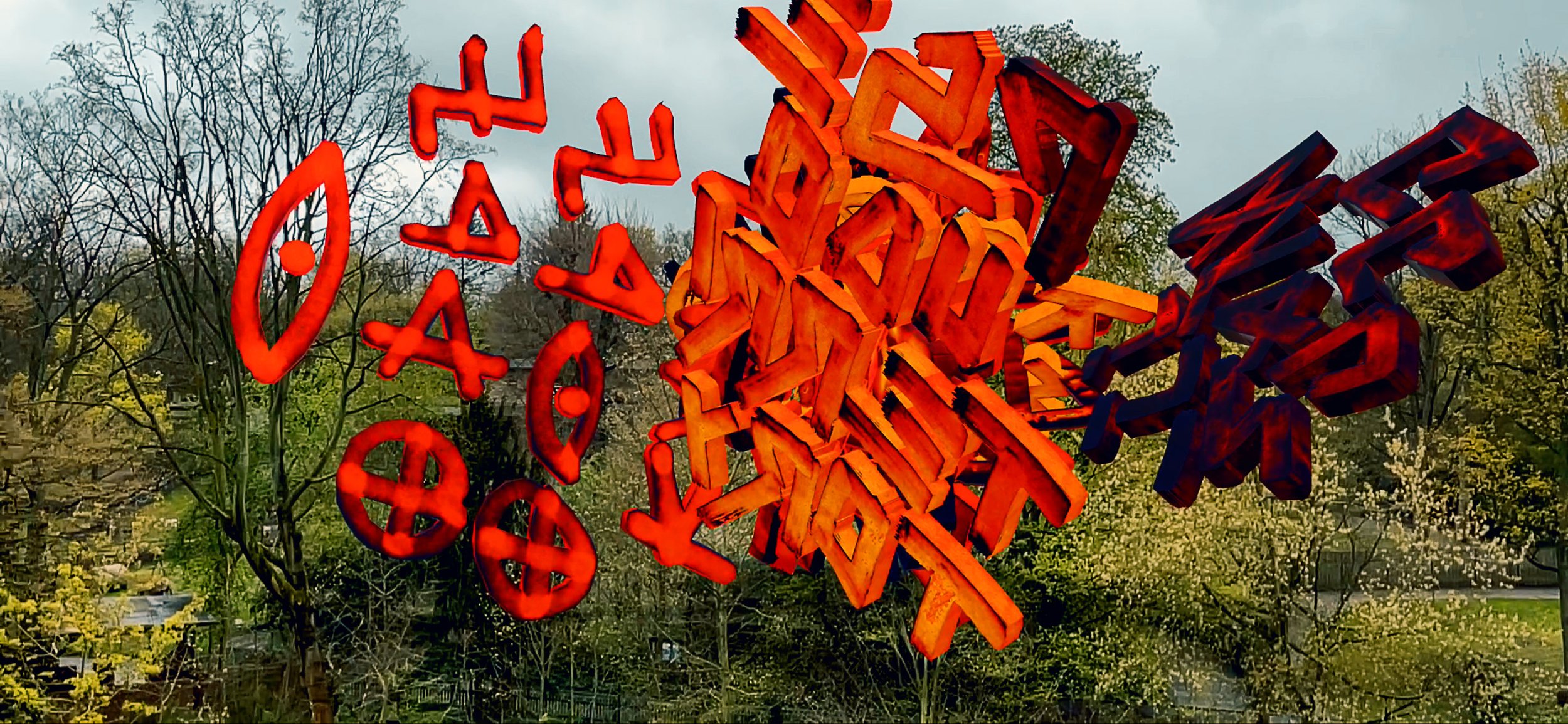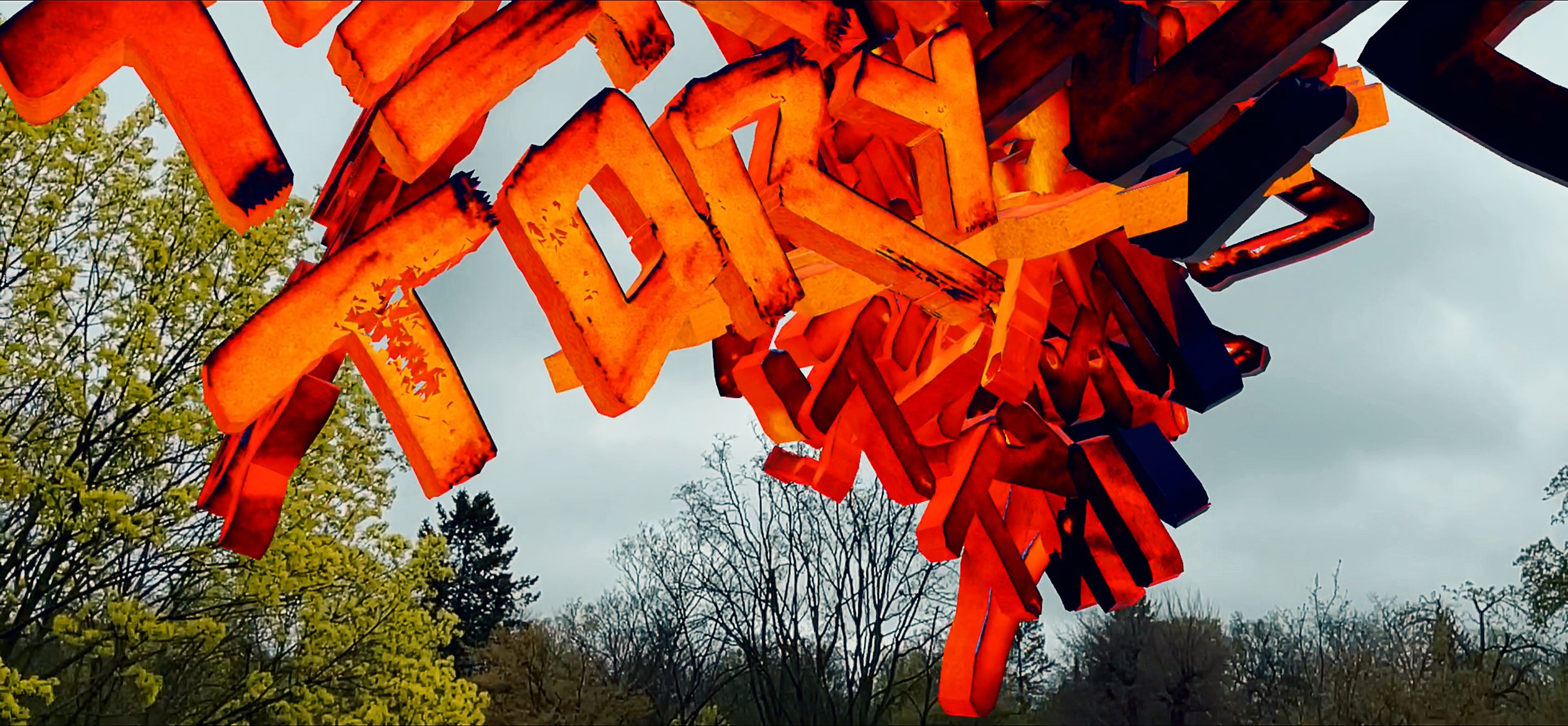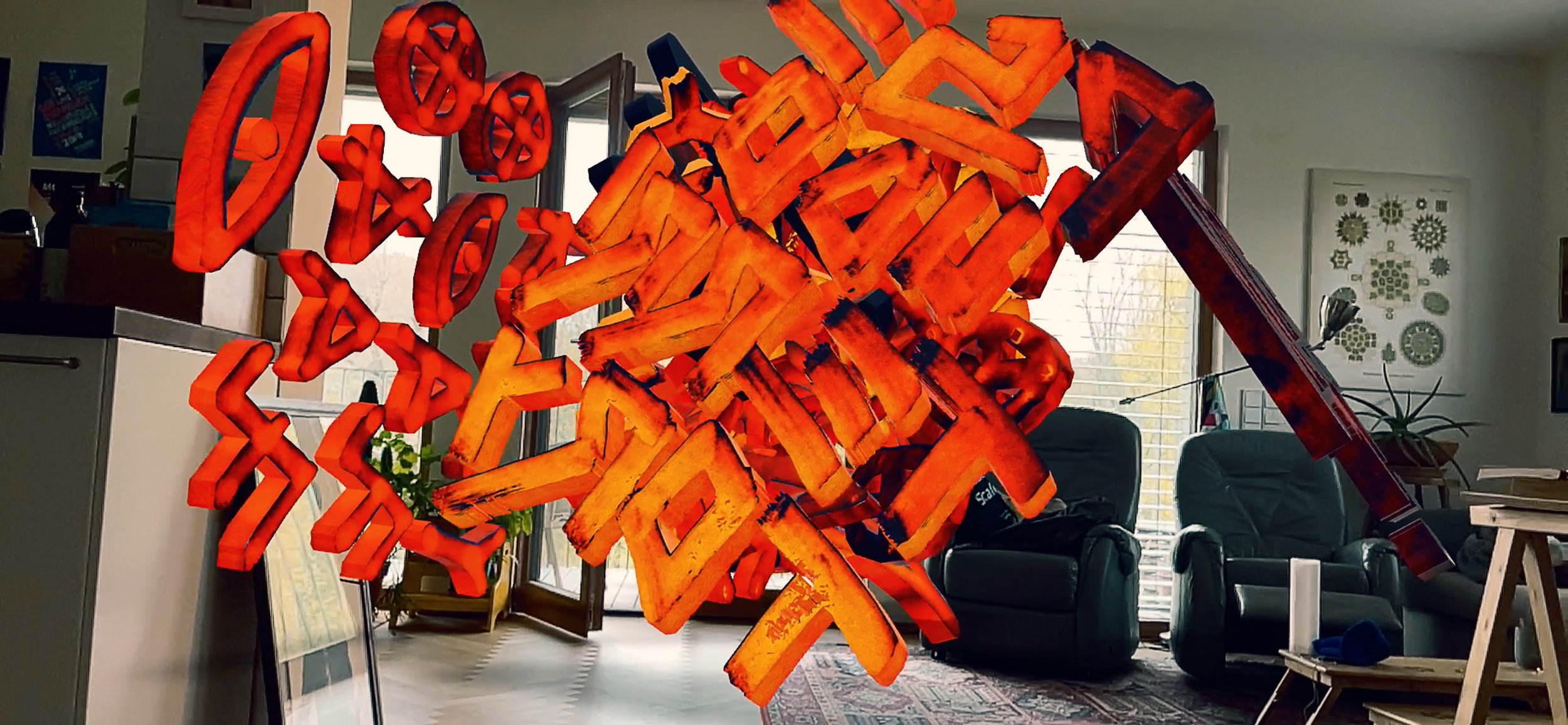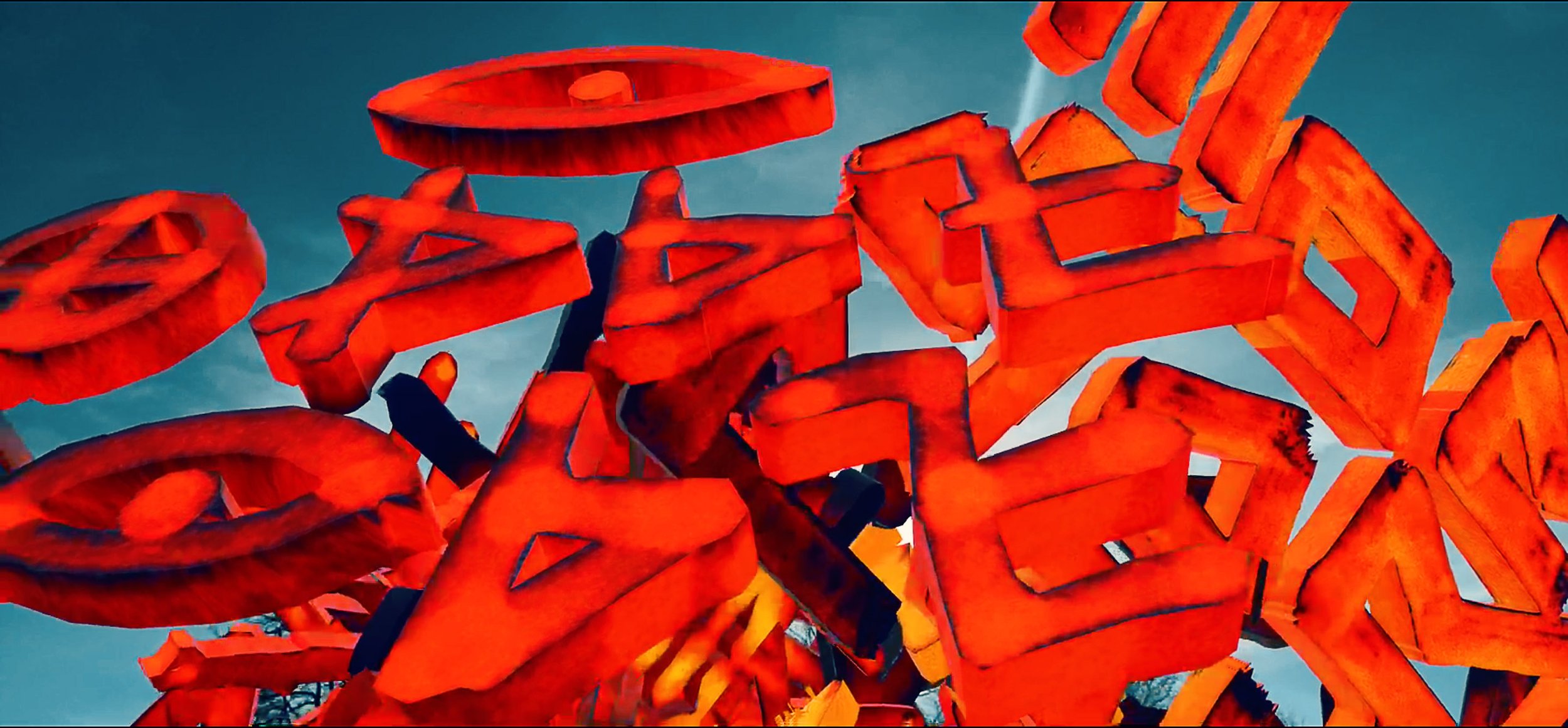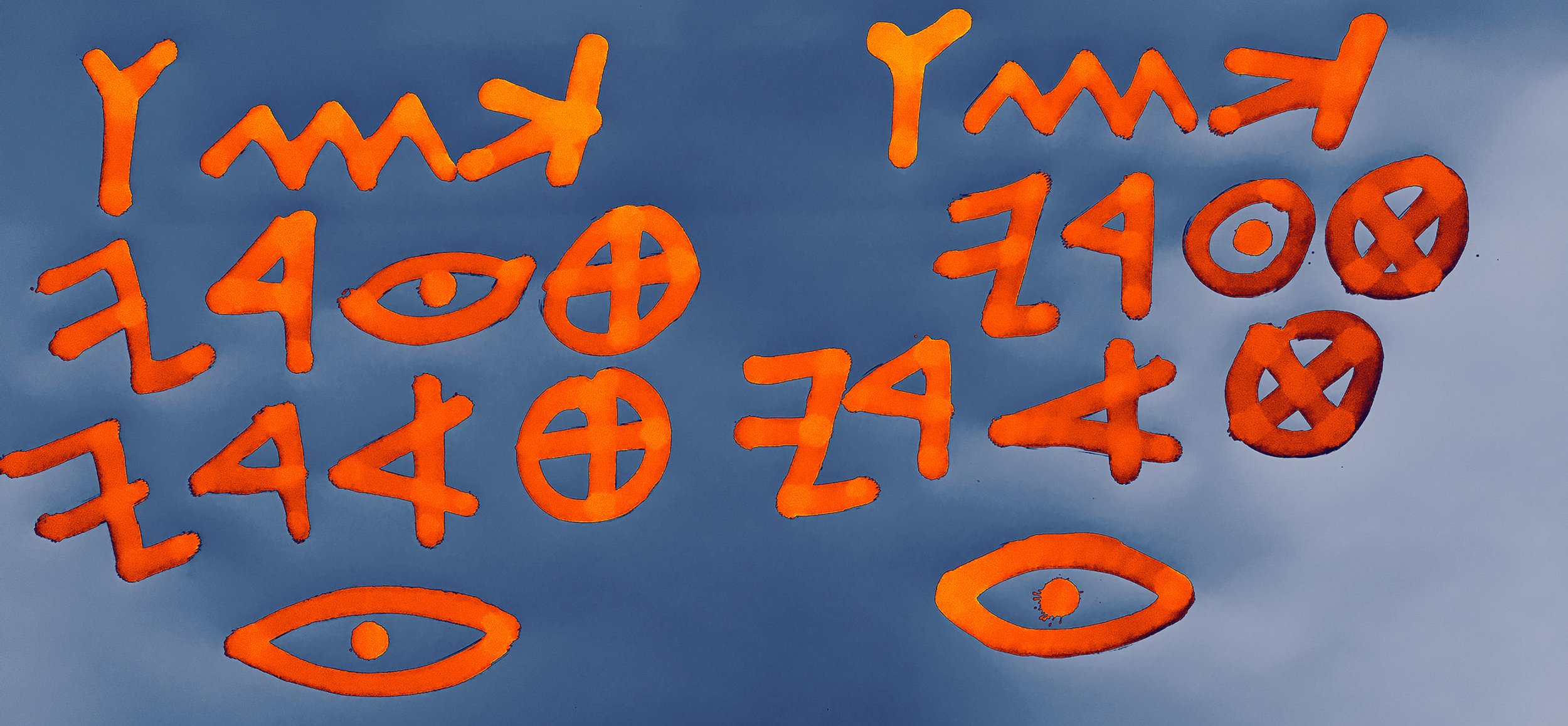Pseudo-territory
Ella Ponizovsky Bergelson & Anna Elena Torres
at The Milk of Dreams, 59th Venice Art Biennale 2022
The interactive AR motion sculpture draws inspiration from the concept of "Quasi-Territory" coined by the Yiddish anarchist literary critic B. Rivkin (1883-1945). The term embodies the nation's meta-space, defined by language and literature rather than physical borders. It symbolises a space that transcends territorial constraints and is unshackled by institutional control.
The sculpture comprises a hybrid representation of three languages: Yiddish, English, and Proto-Canaanite, an ancient writing system dating back to the 17th century BC, mother of Alphabetic typography. Hence, it aims to encompass the various writing systems that have evolved from it over time. The languages are intricately intertwined, revolving and morphing across time and geography, forming a dynamic and ever-living pseudo-territory.
While the sculpture is globally accessible, its primary purpose is to serve as a soft intervention in a dialogue with the German pavilion, characterised by fascist architectural principles, as artist M. Eichhorn's work, "Relocating a Structure" that stripped the architectural layers of the pavilion to unveil the political transformations of both the building, the German society and its representation at the Biennale, serves as a backdrop to the colourful sonic sculpture that slowly floats into the building and seamlessly breathes through its spaces. It functions as a poignant reminder of the historical Jewish presence engaging in cultural exchange with Germany, manifested through language, culture, music, people, architecture, etc, prior to the Holocaust and signifies its resurgence in contemporary times.
The Yiddishland pavilion, curated by M. Veits and Y. Fiks, stands as an autonomous transnational platform that brings together artists and scholars who actively promote Yiddish and diasporic Jewish discourse within modern artistic practices. It initiates a collaborative exchange with national pavilions of countries with a historical Yiddish-speaking population. As a stateless, fluid, and nomadic endeavour, the Yiddishland pavilion seeks to challenge the conventional national divisions observed in the context of the Venice Art Biennale.
Created with the help of Arhead, a community-driven platform to create content and spaces for the individuals that push forward their ideas and engage audiences in the Metaverse.
Soundtrack design: Ella Ponizovsky Bergelson.
Background sound source: "Mayn Rue Platz / My Resting Place” (1911), Morris Rosenfeld, performed by The Pennywhistlers.
Voiceover: Arnd Beck: "A Nesia / A Journey" (2012) by Rivka Basman Ben-Hayim.
